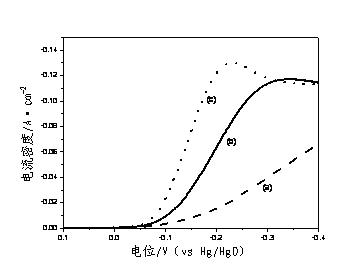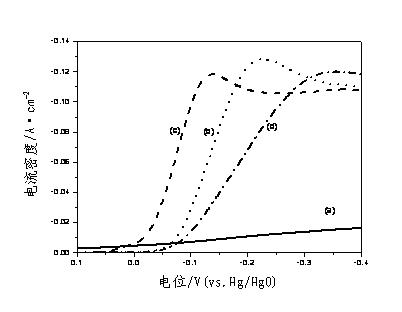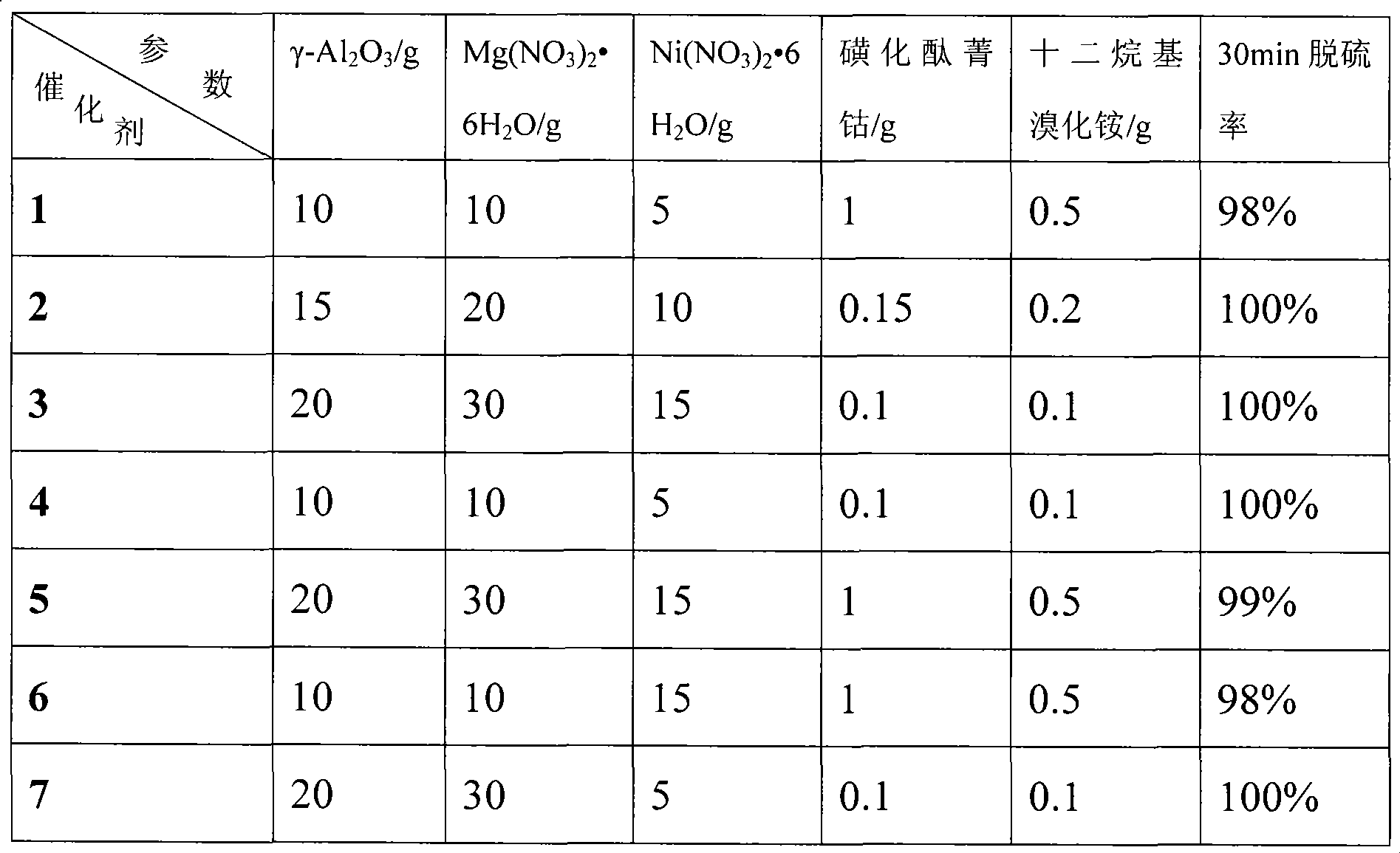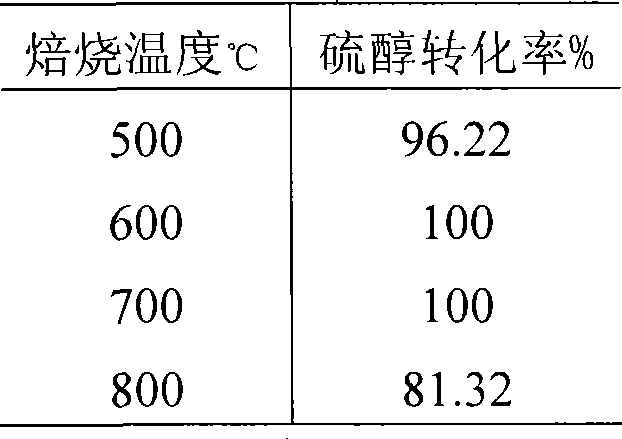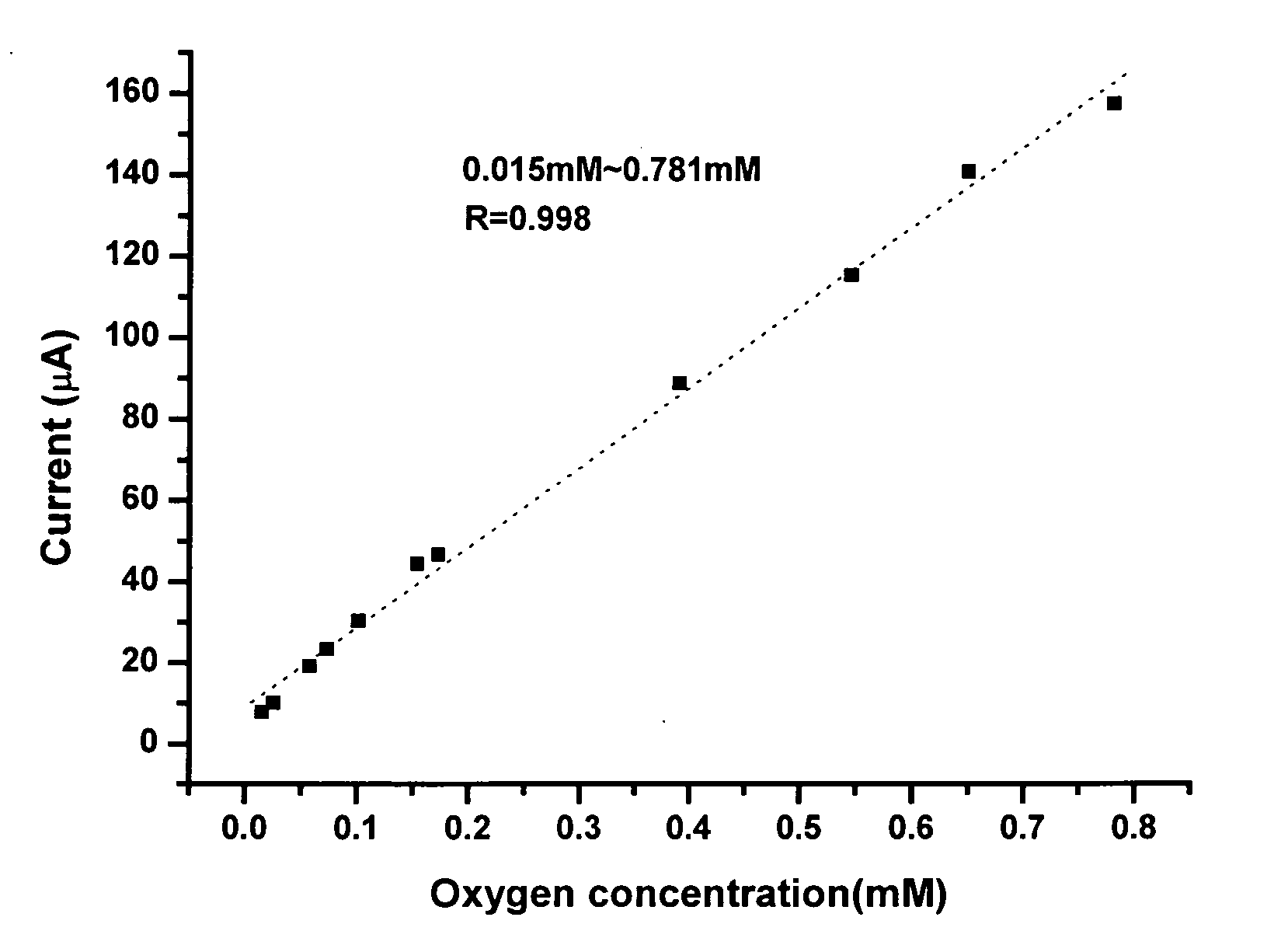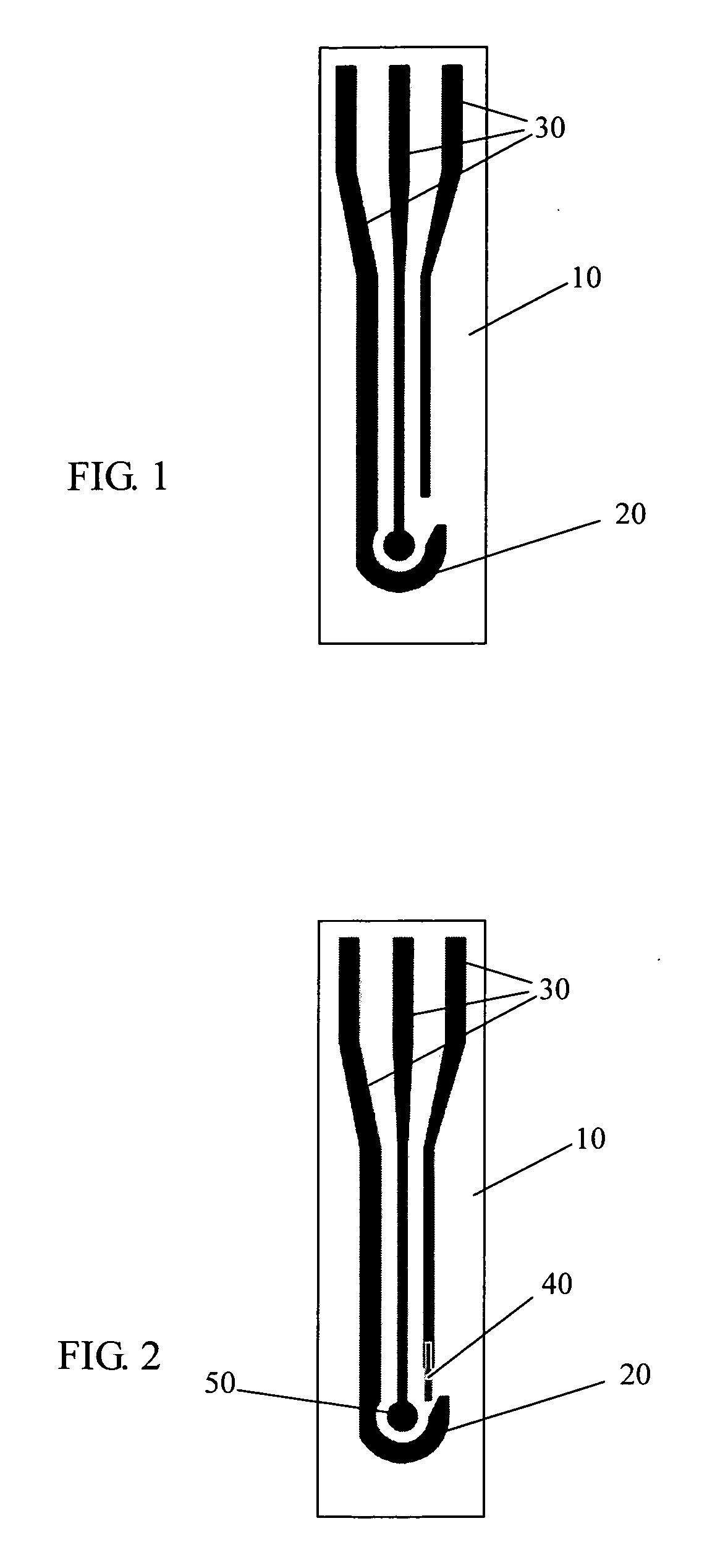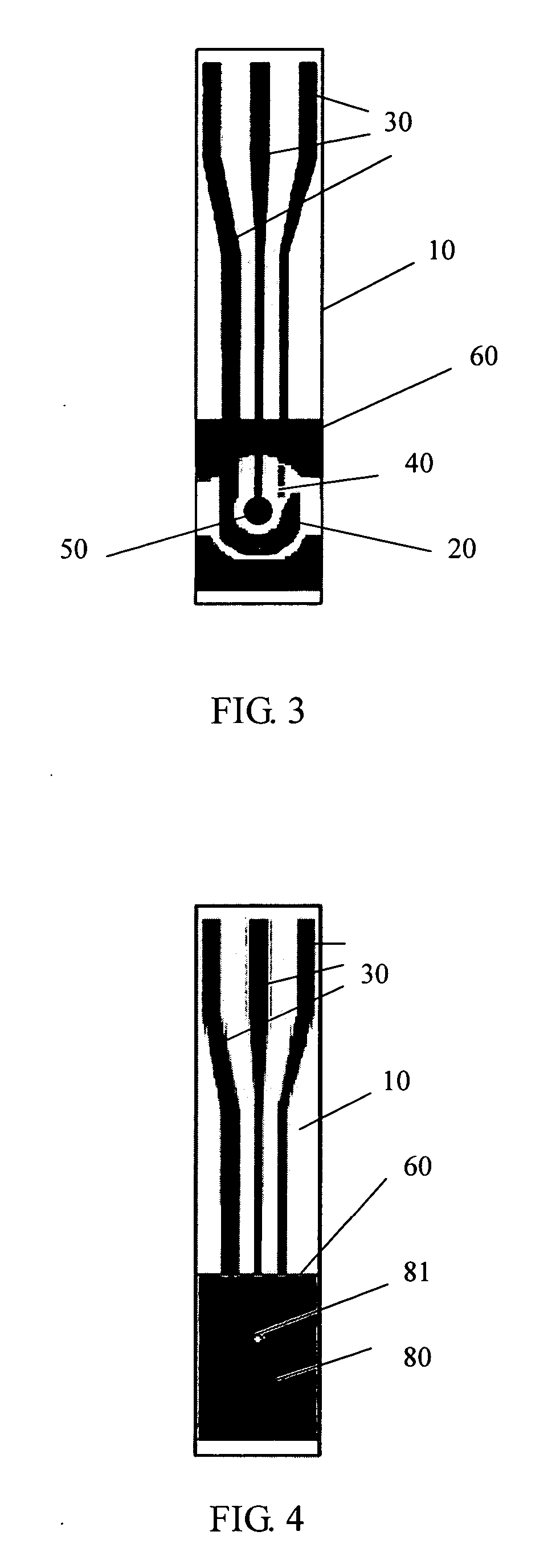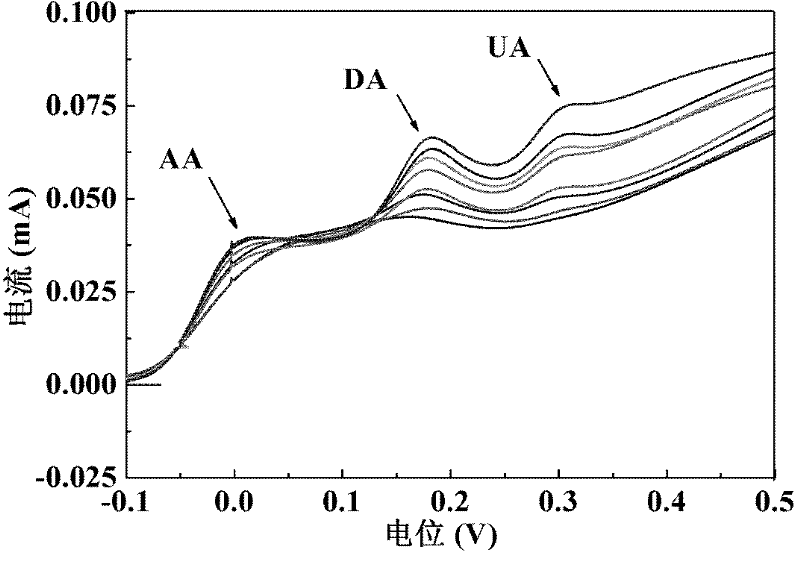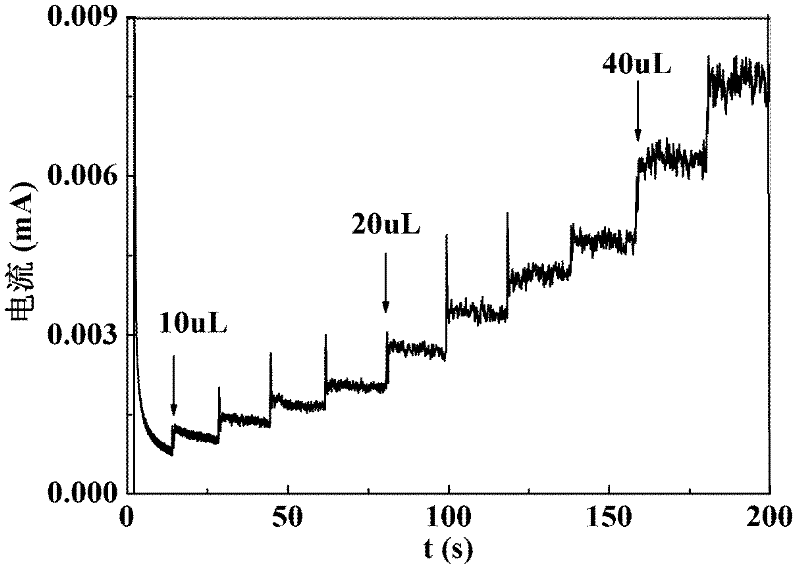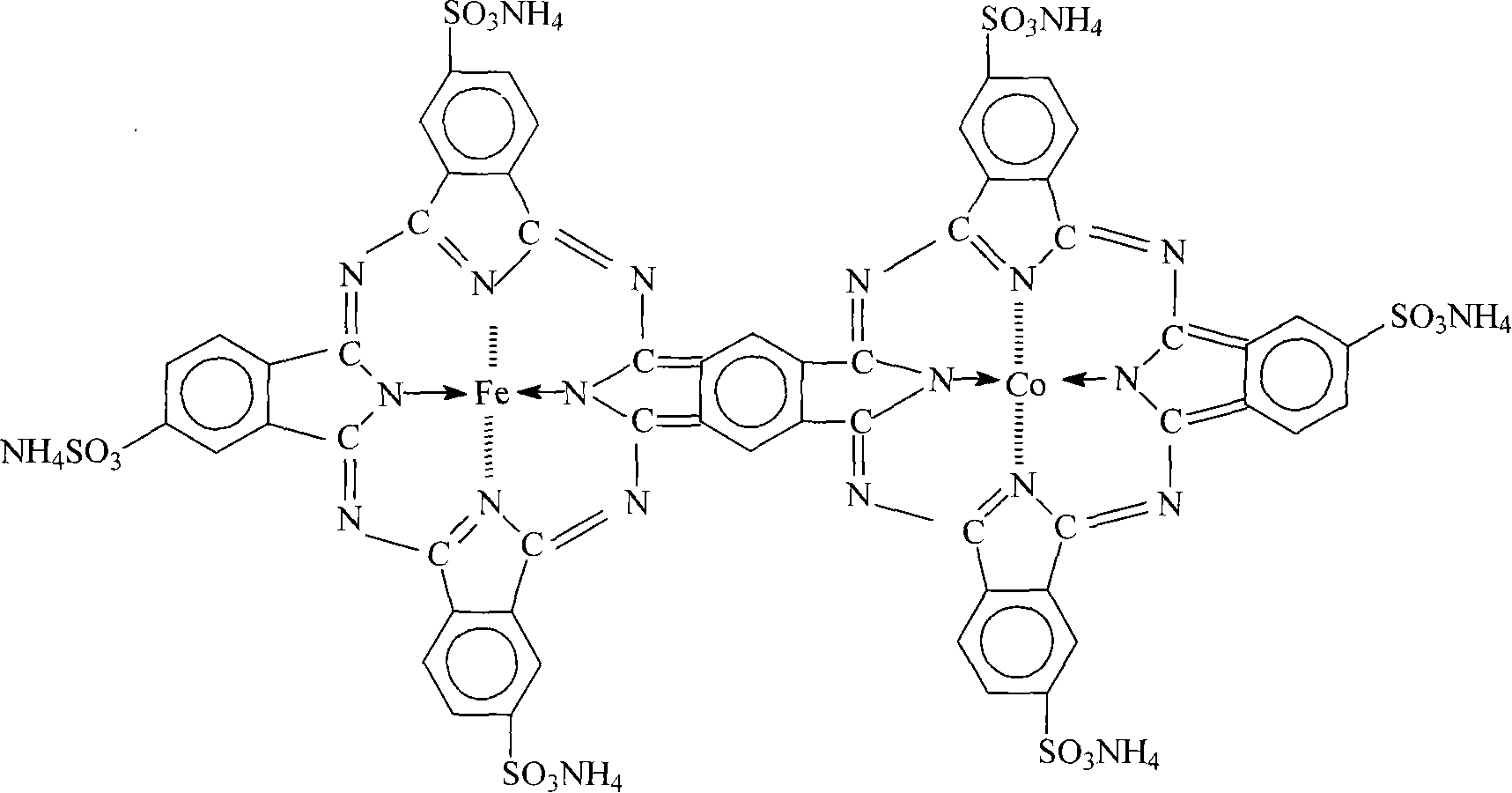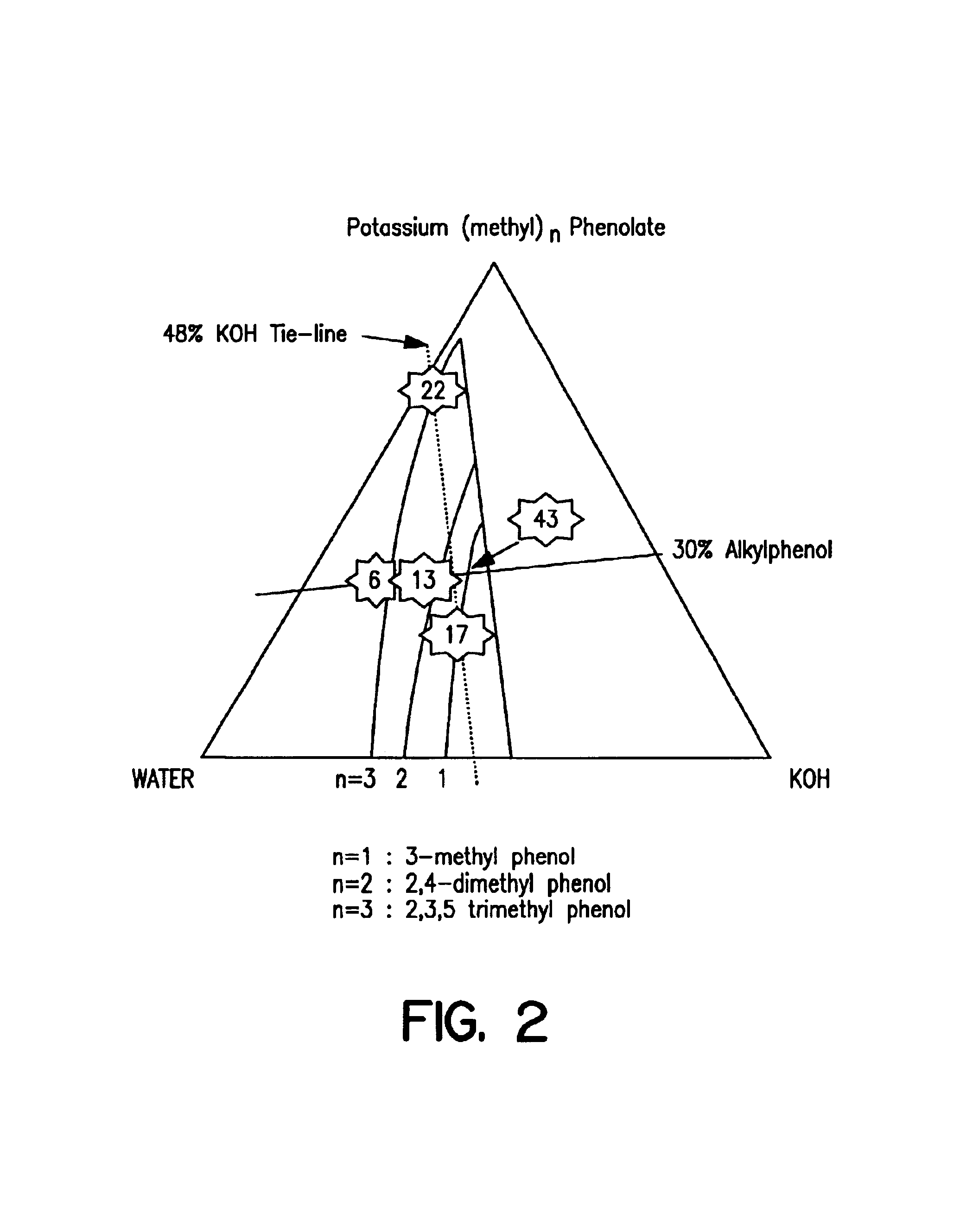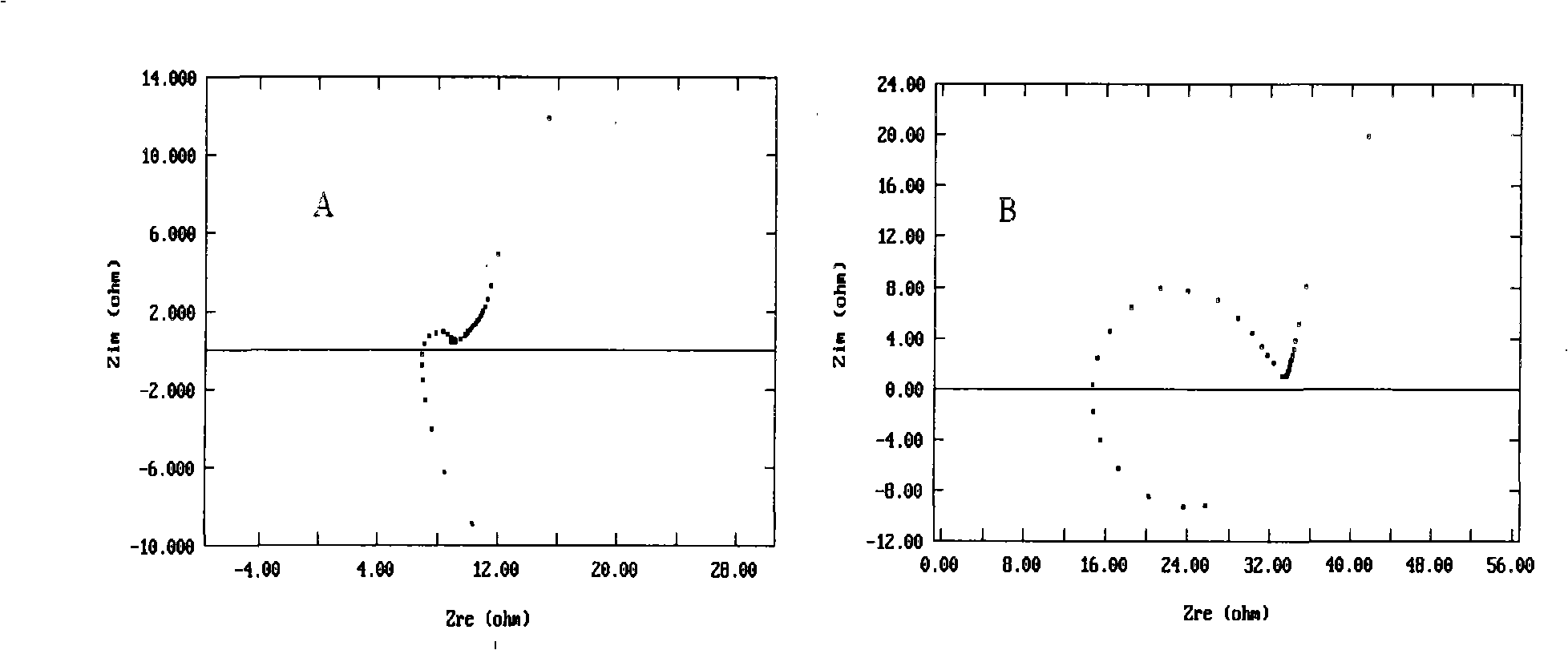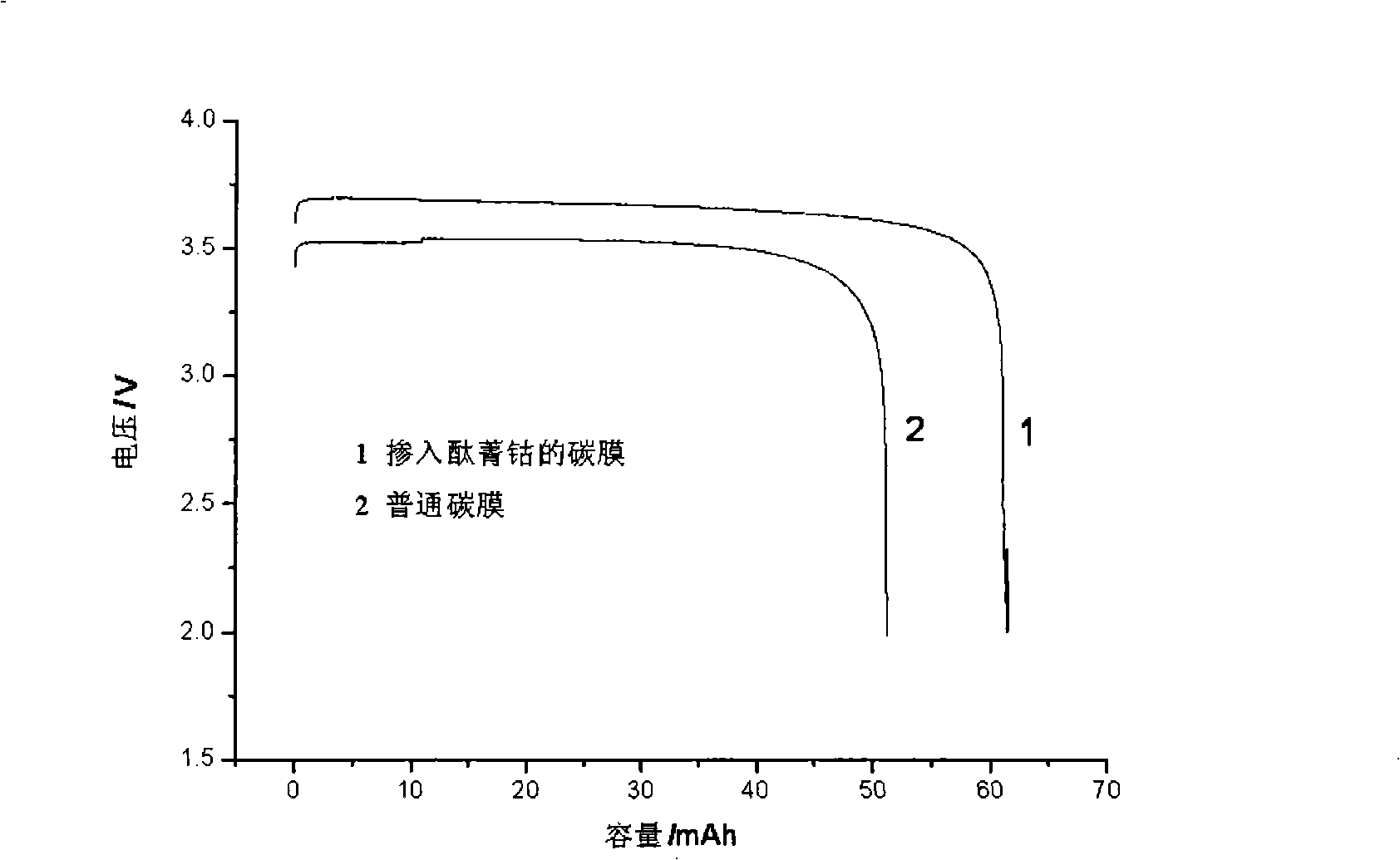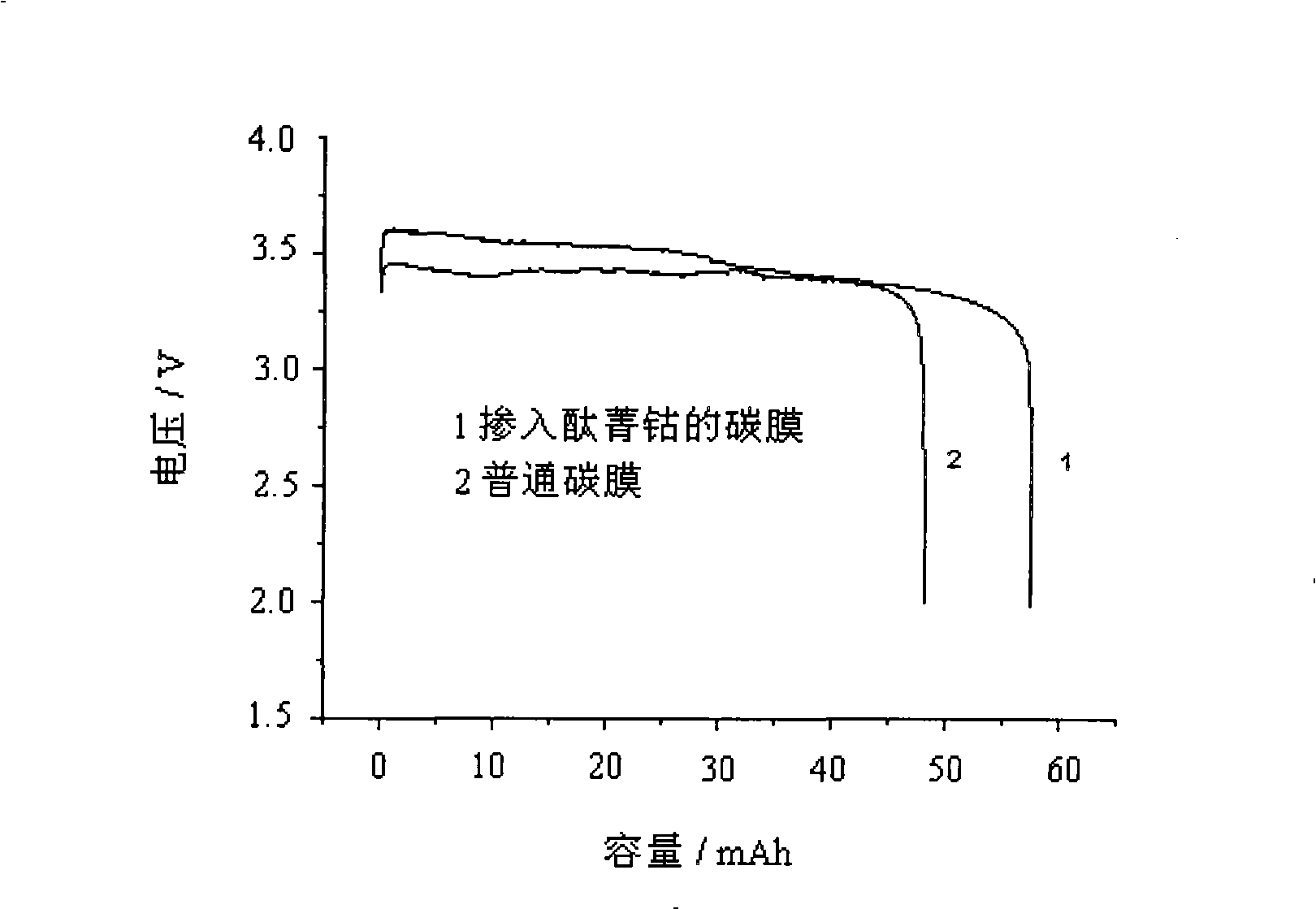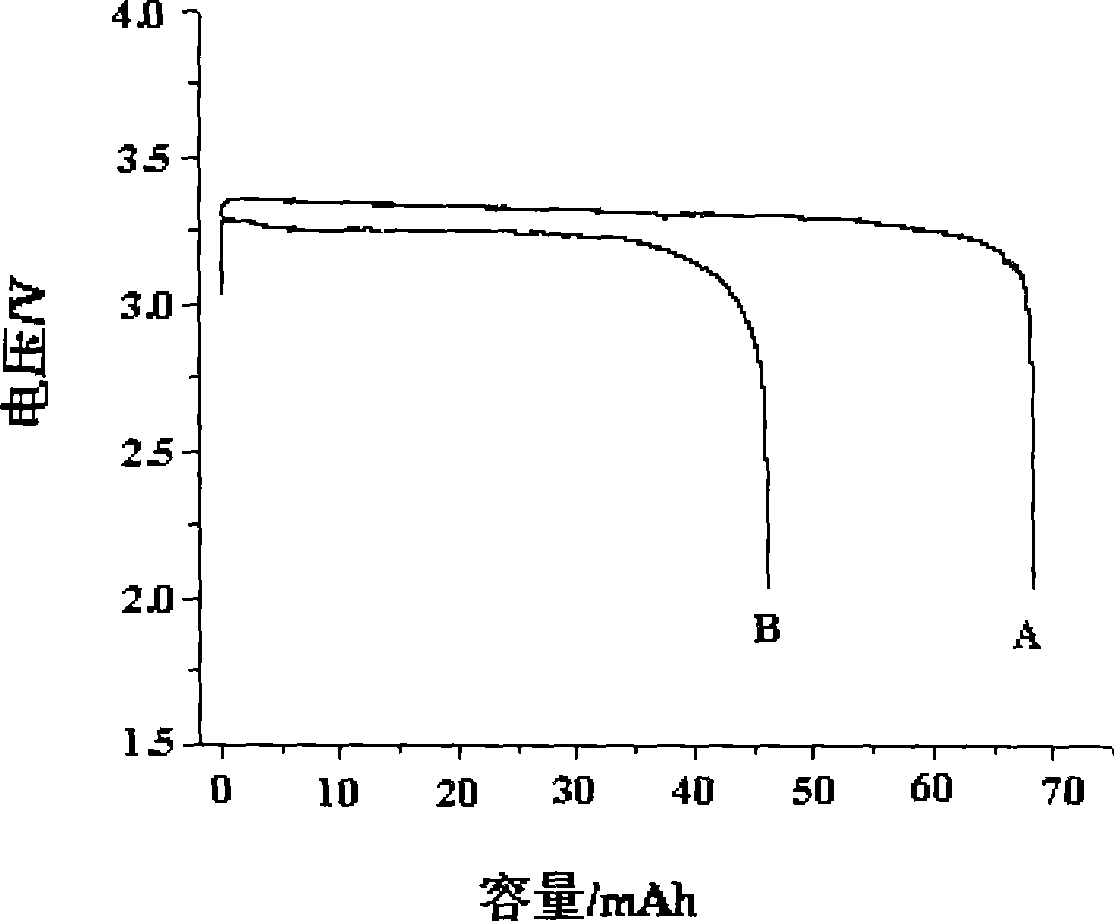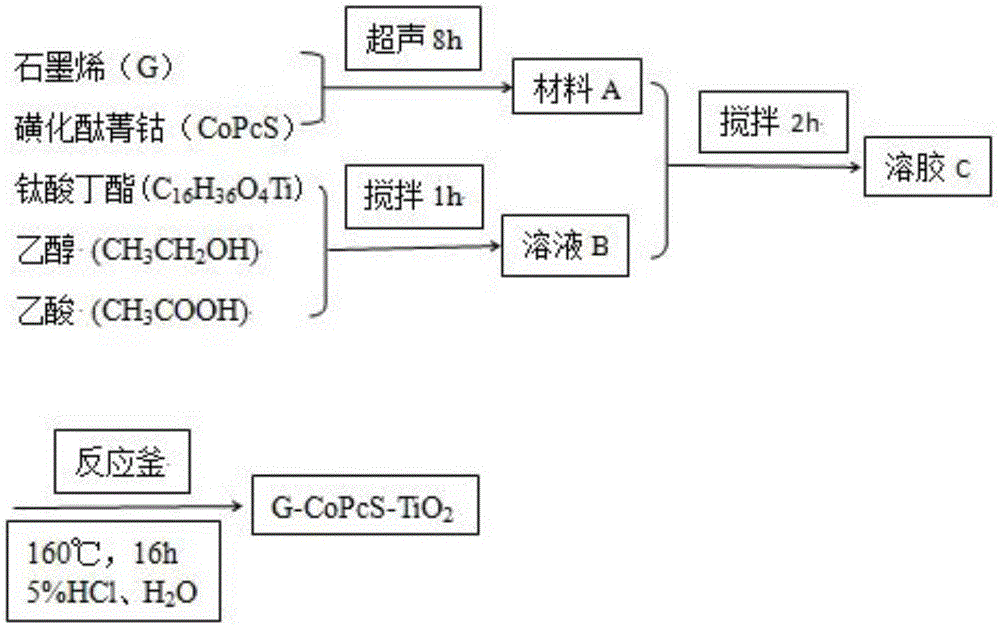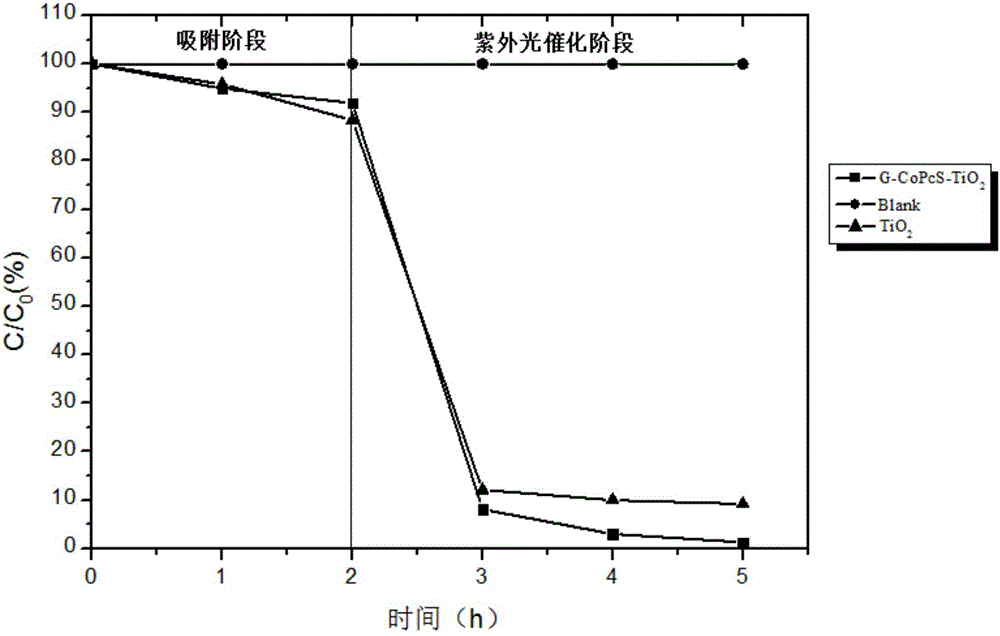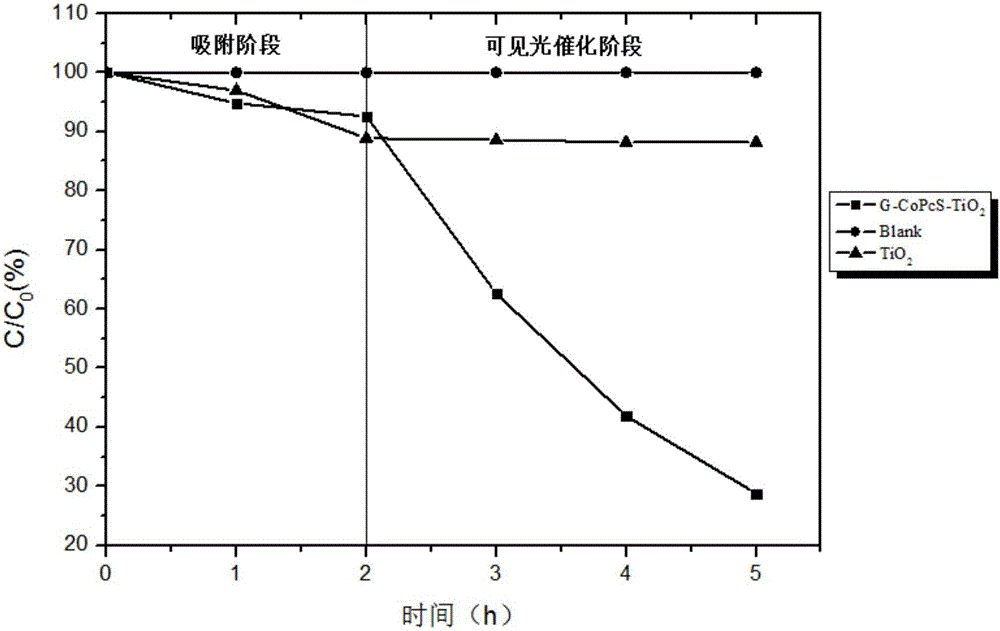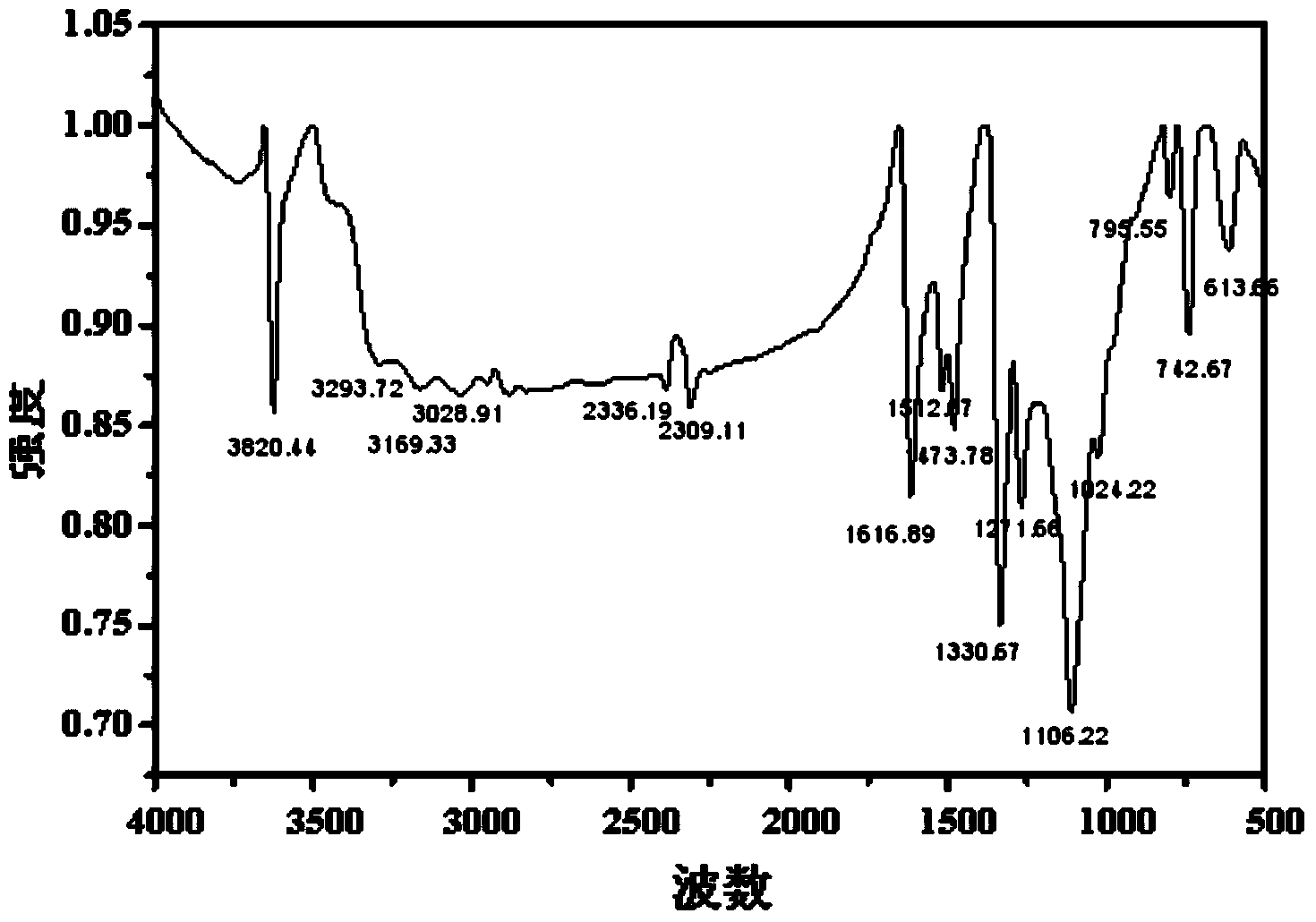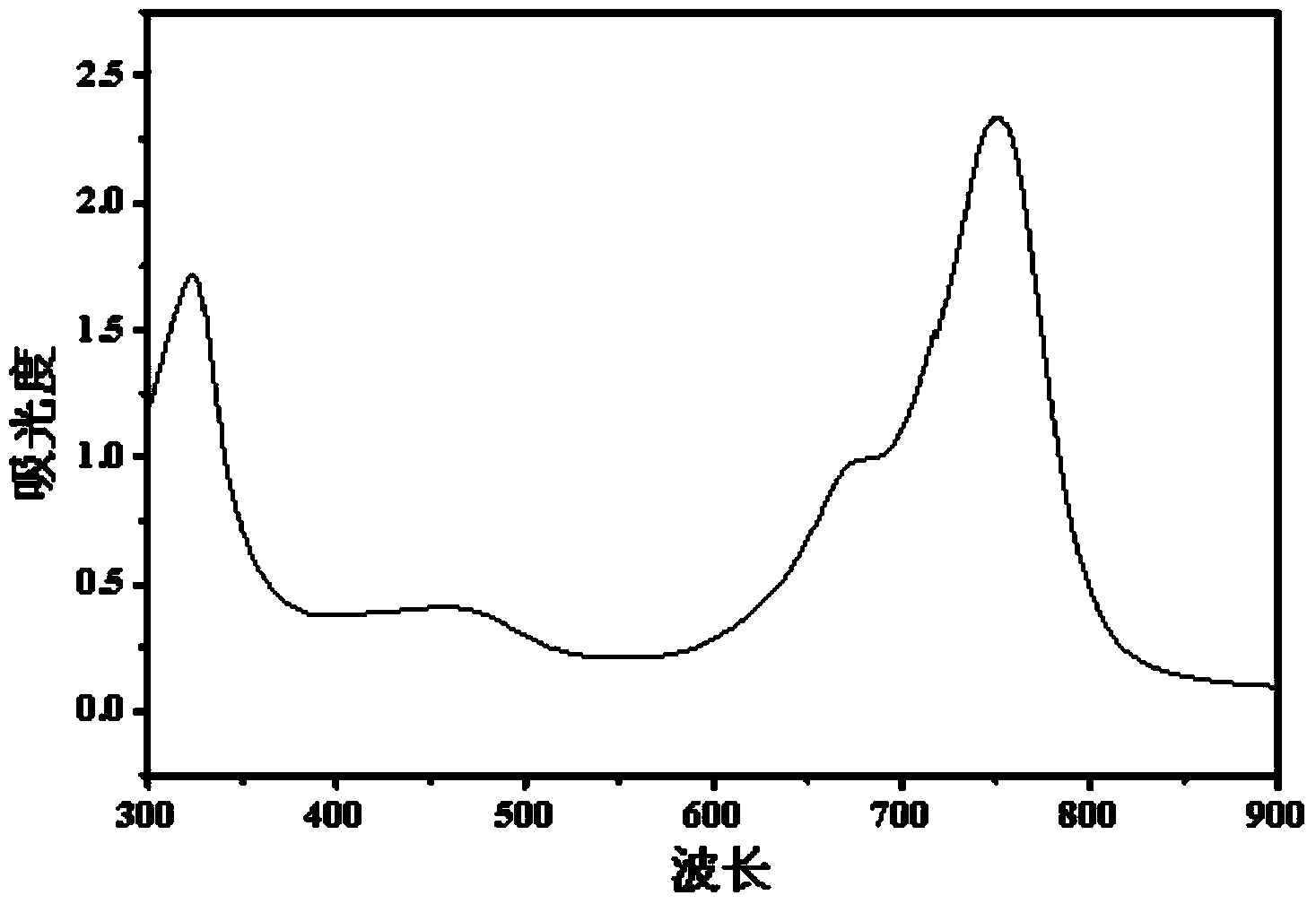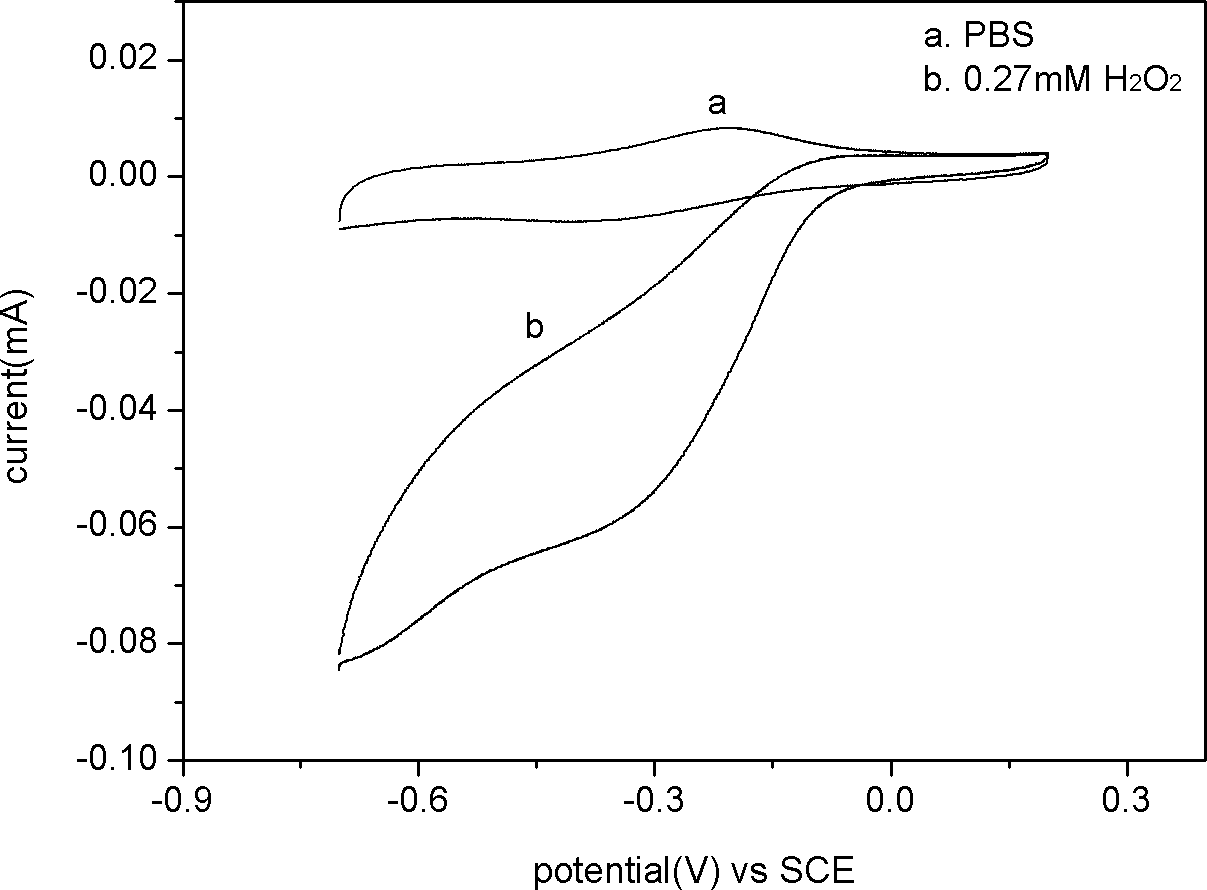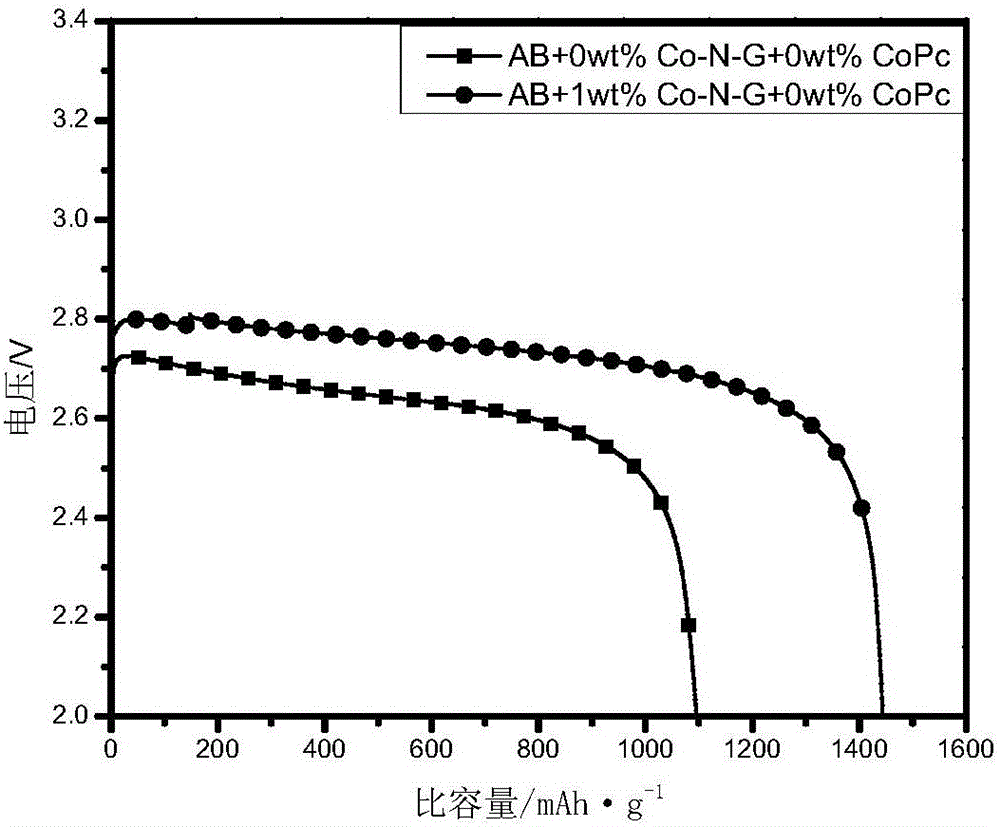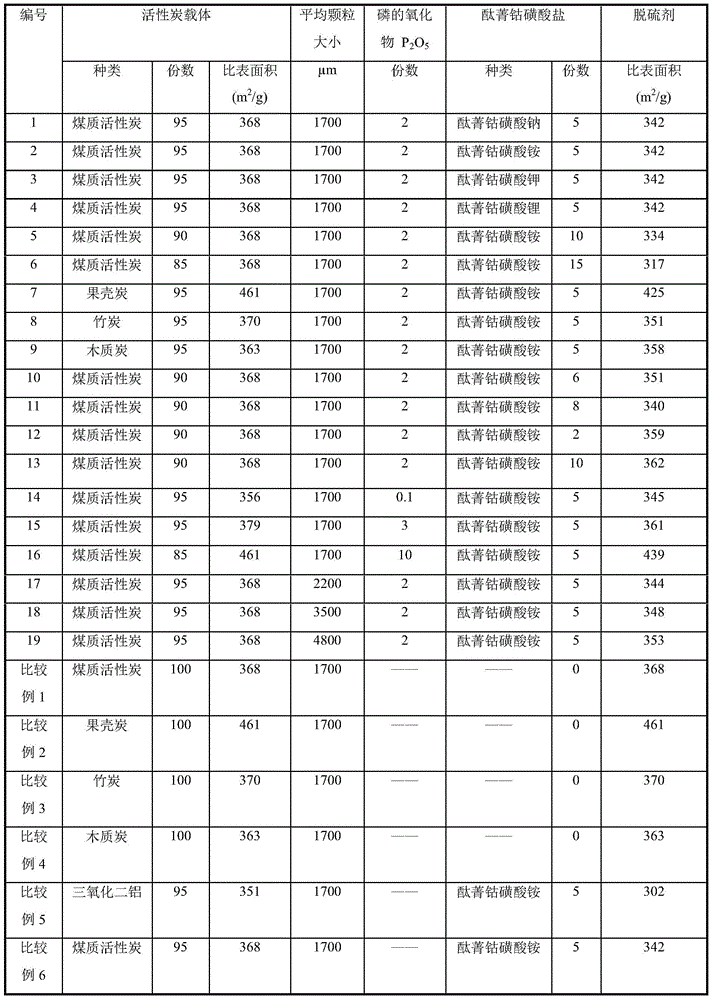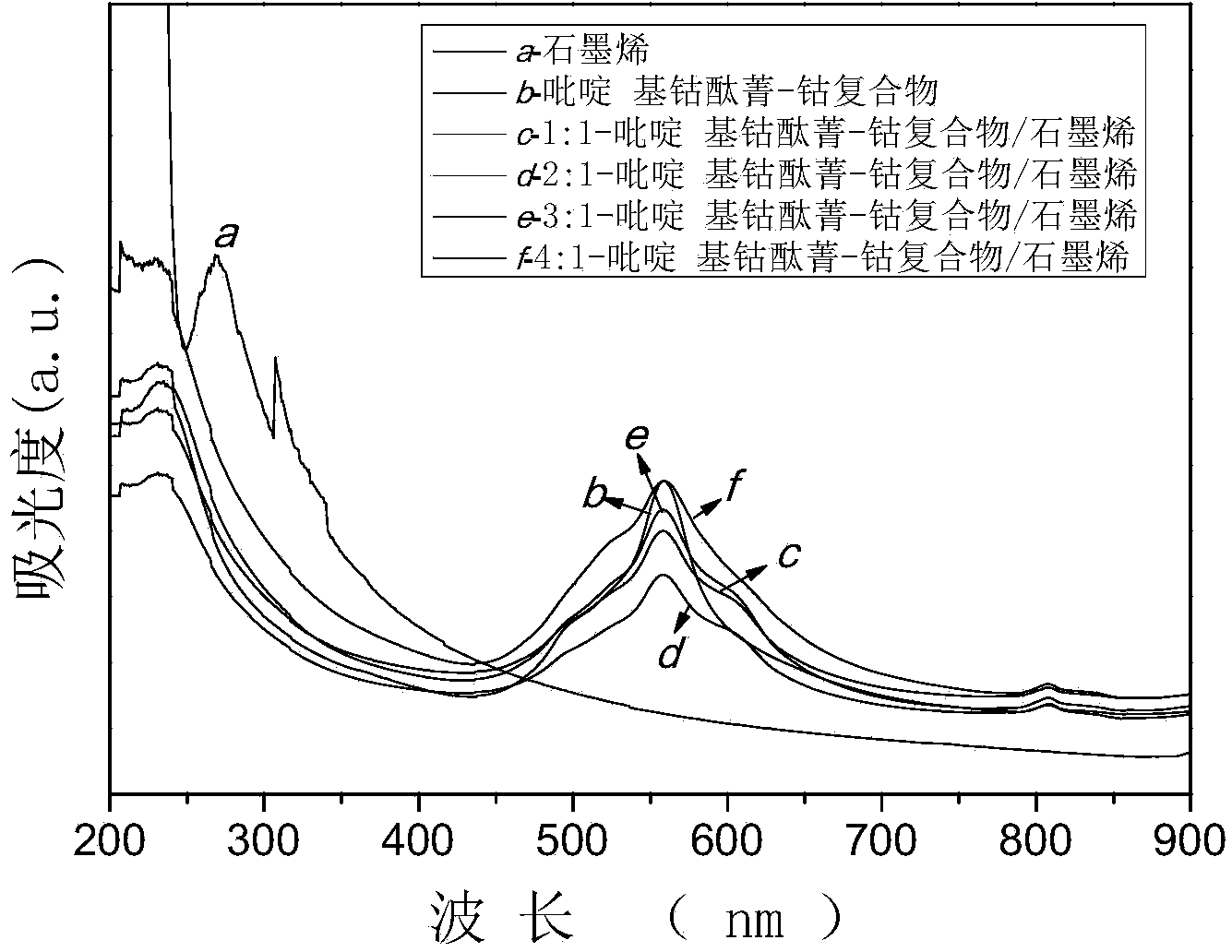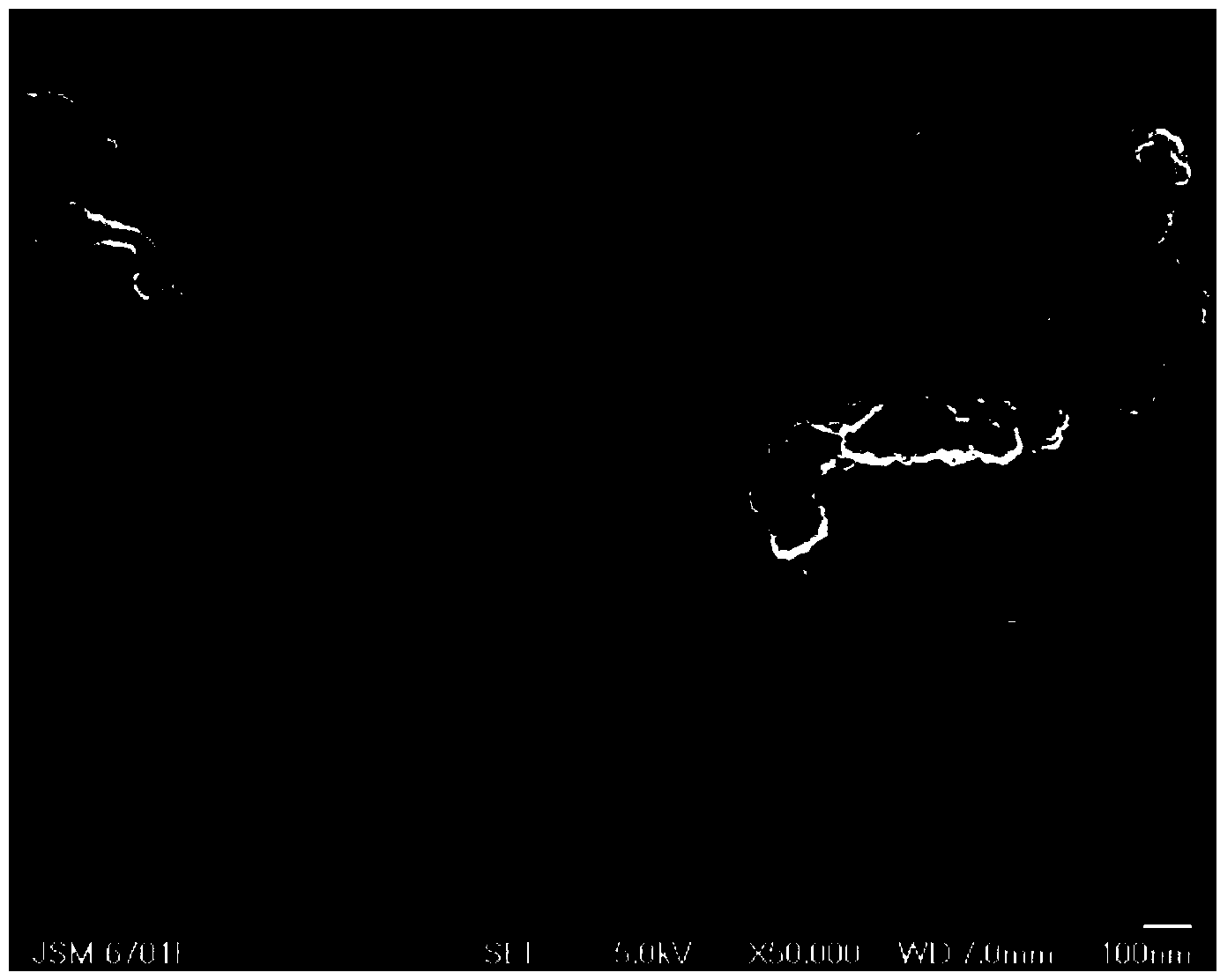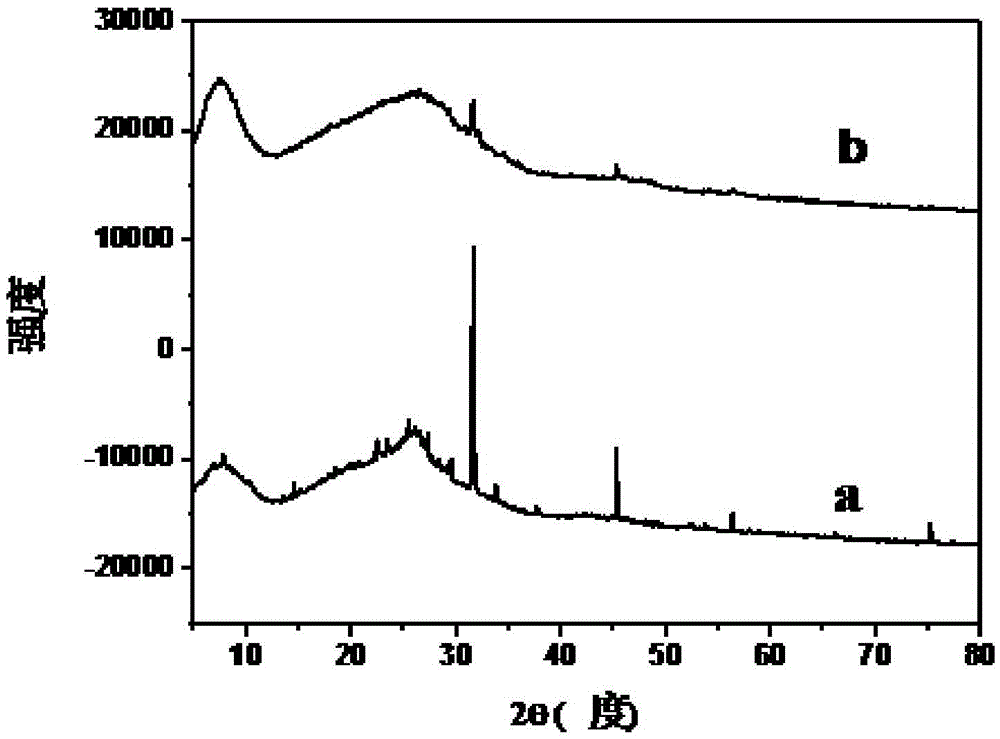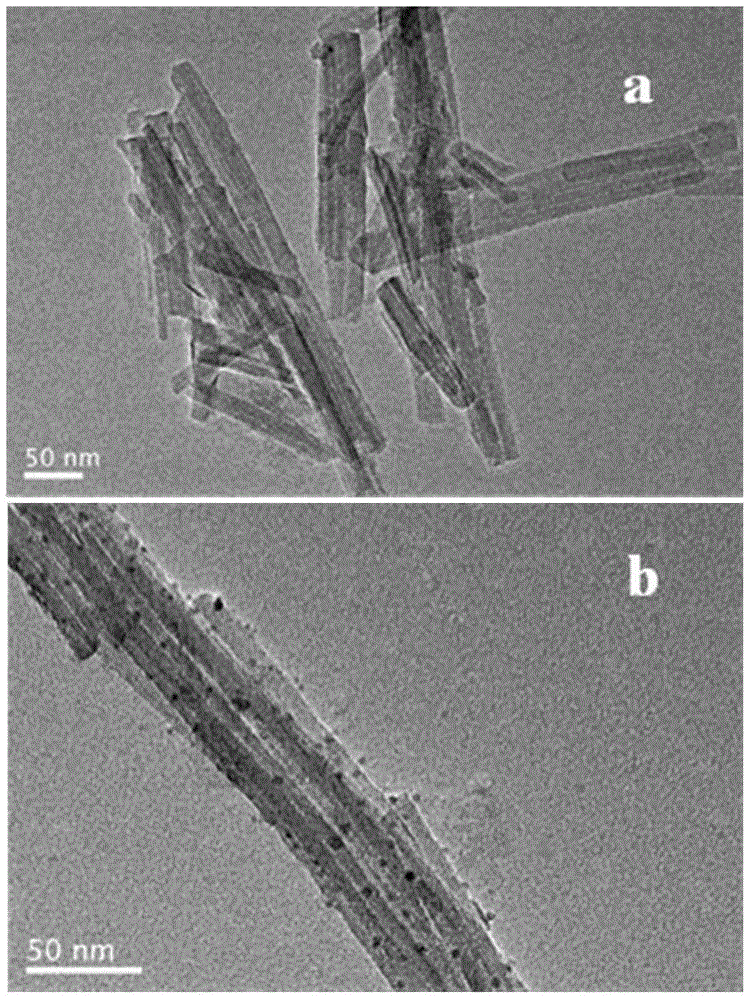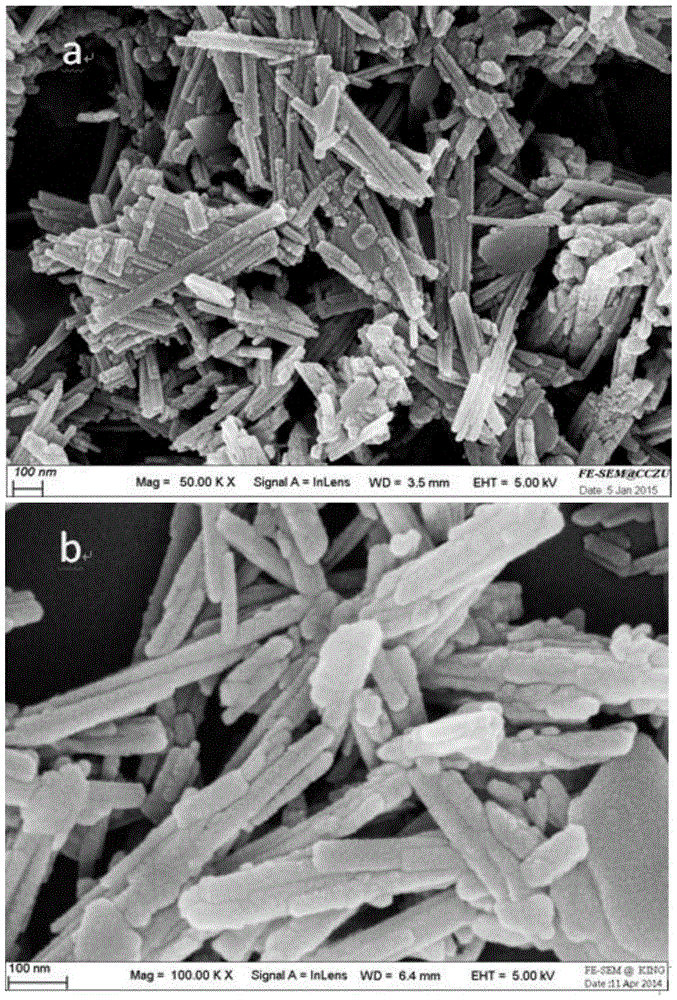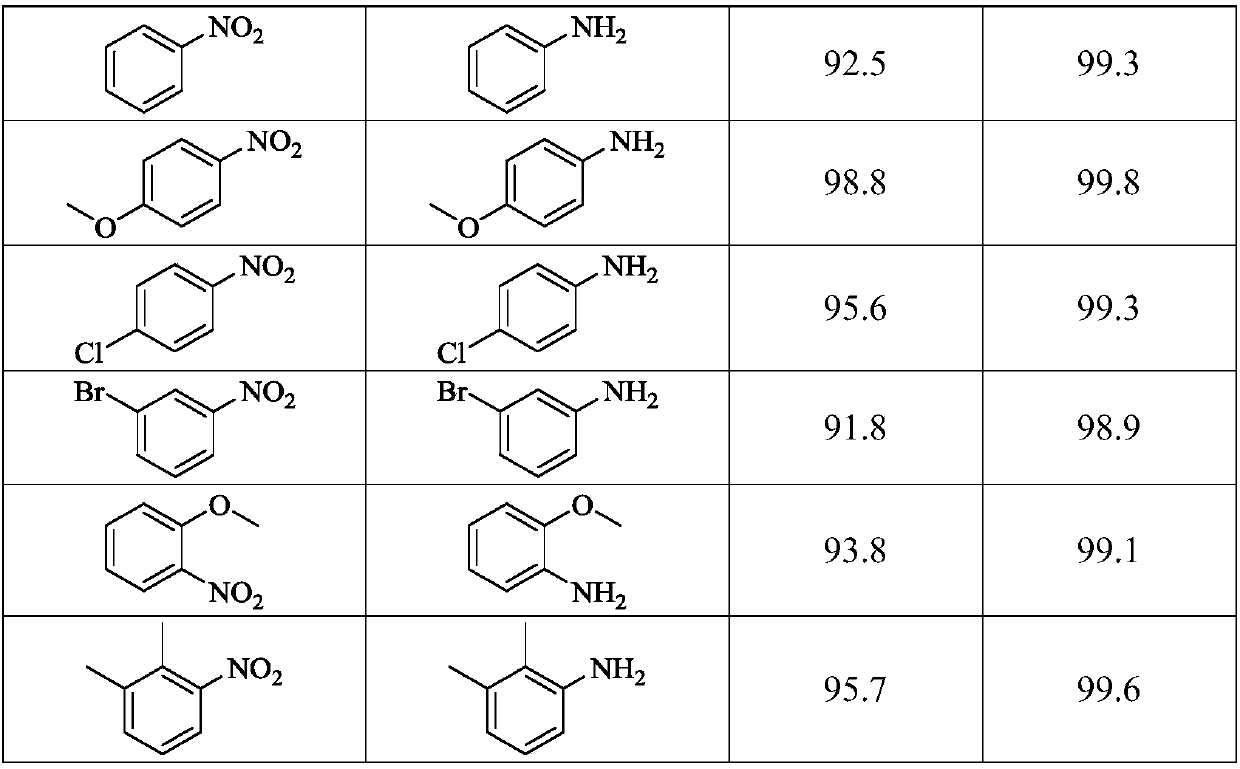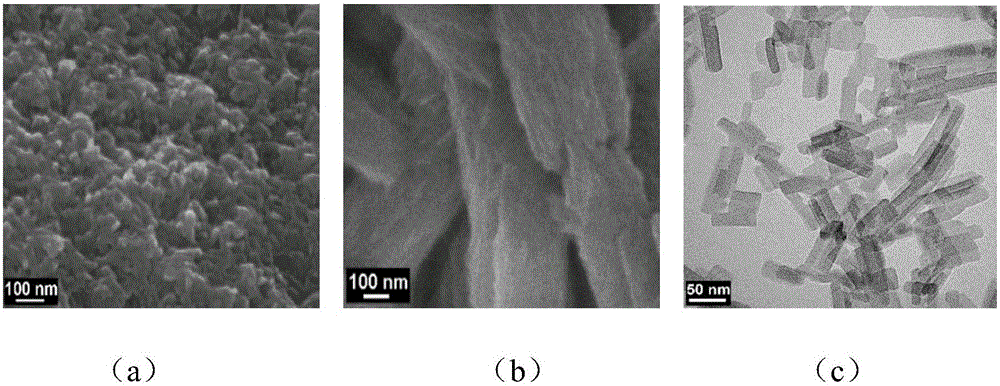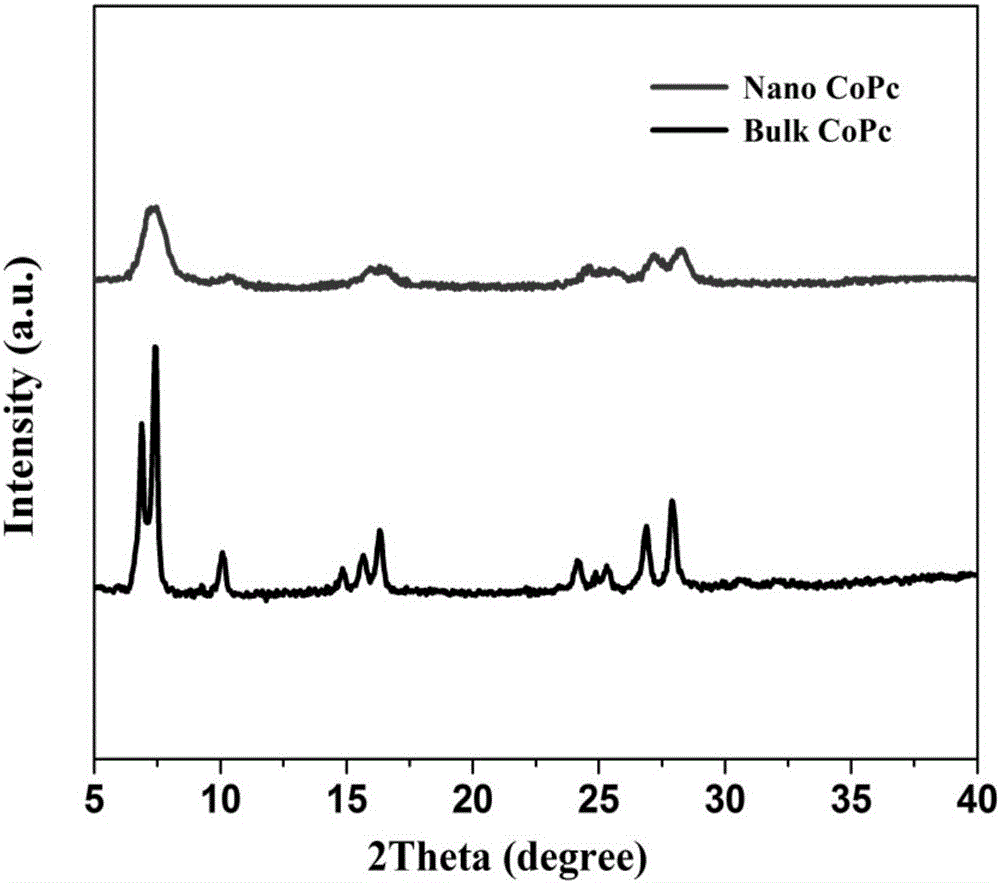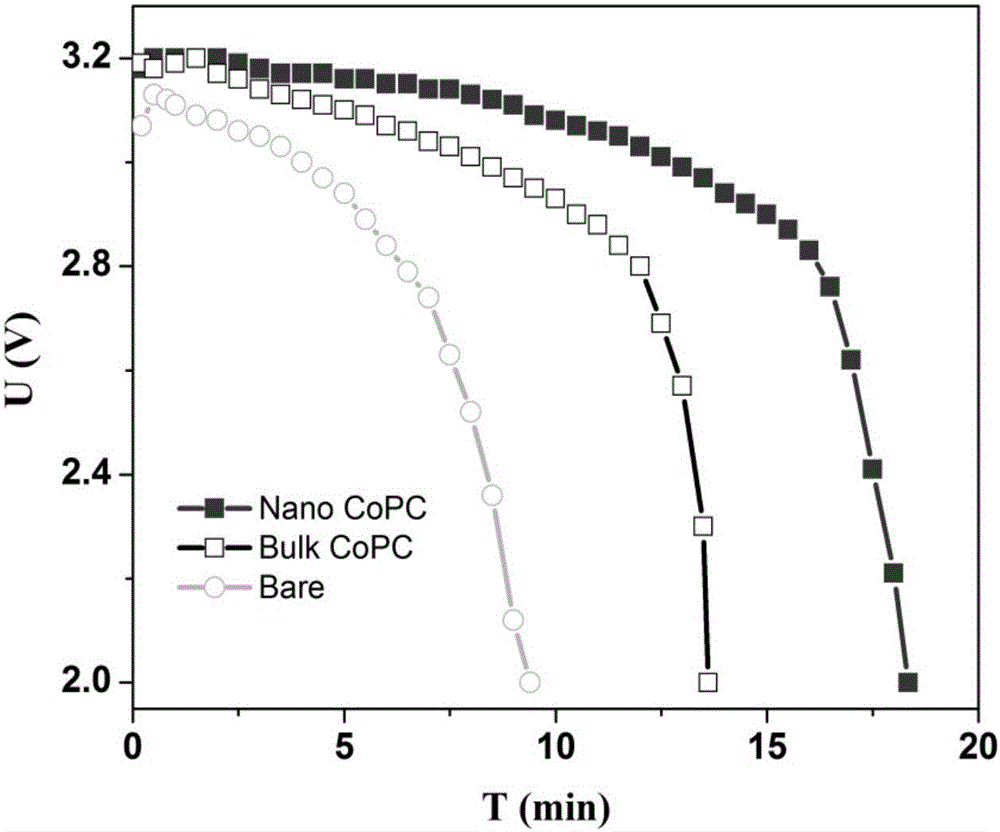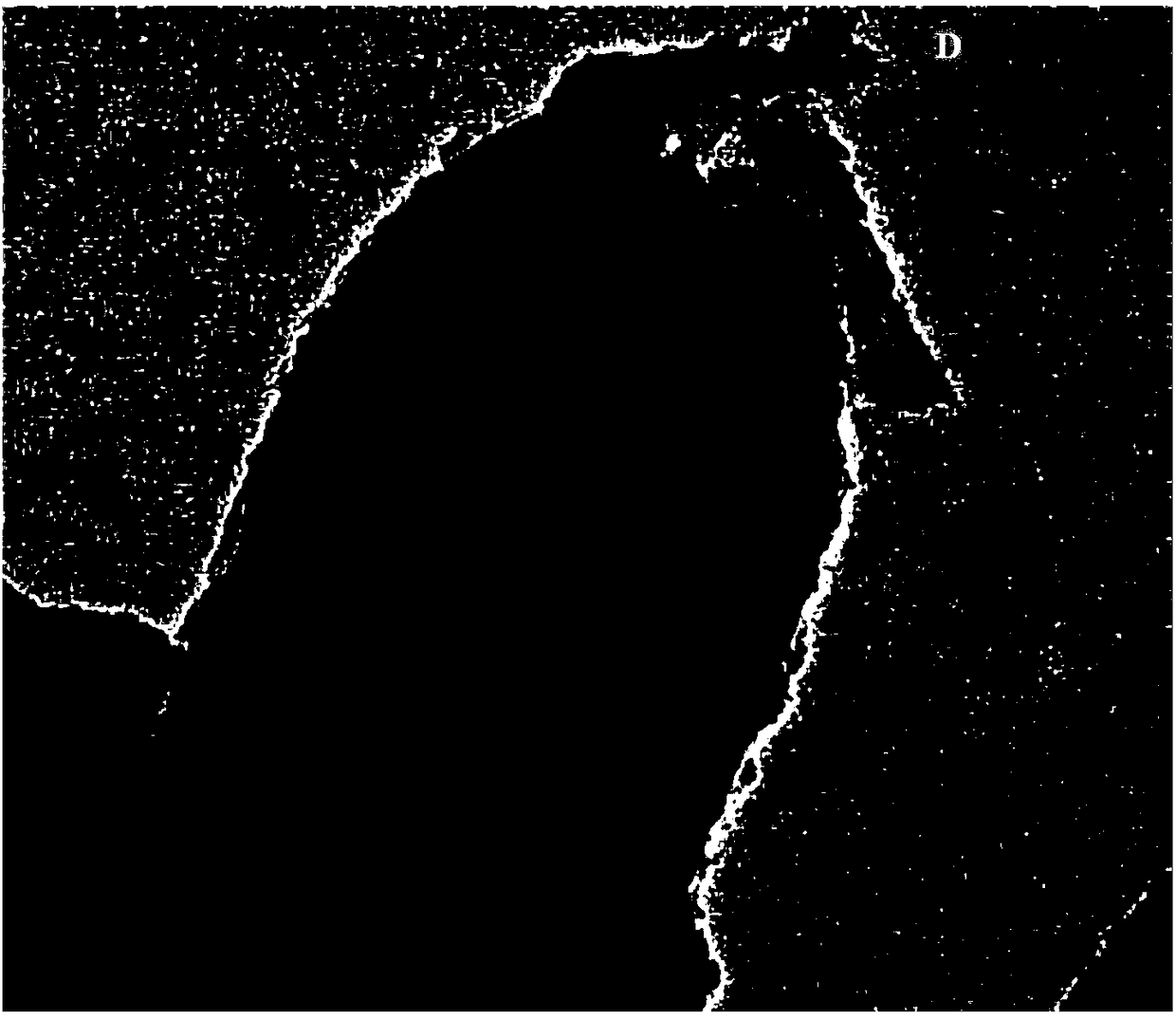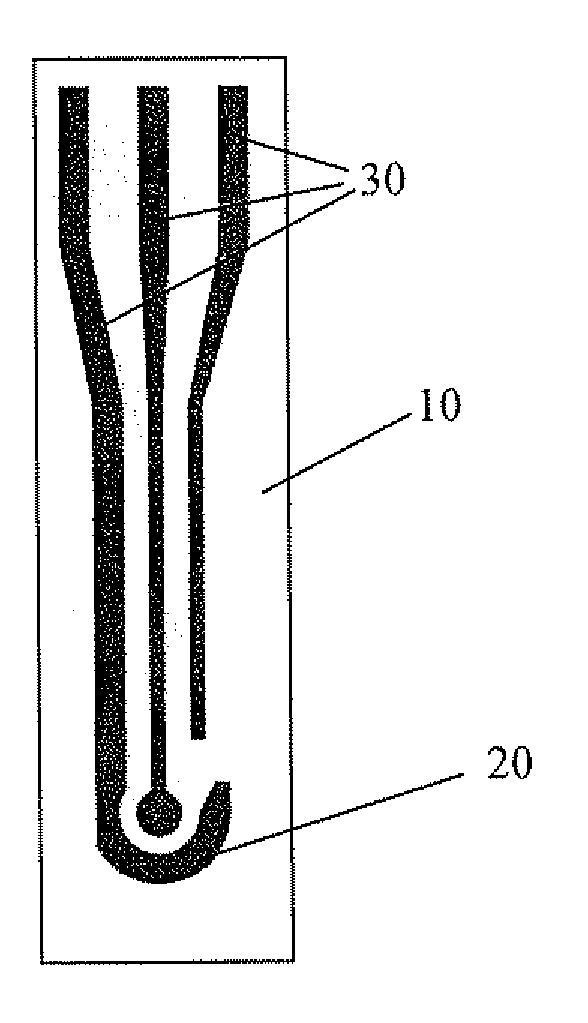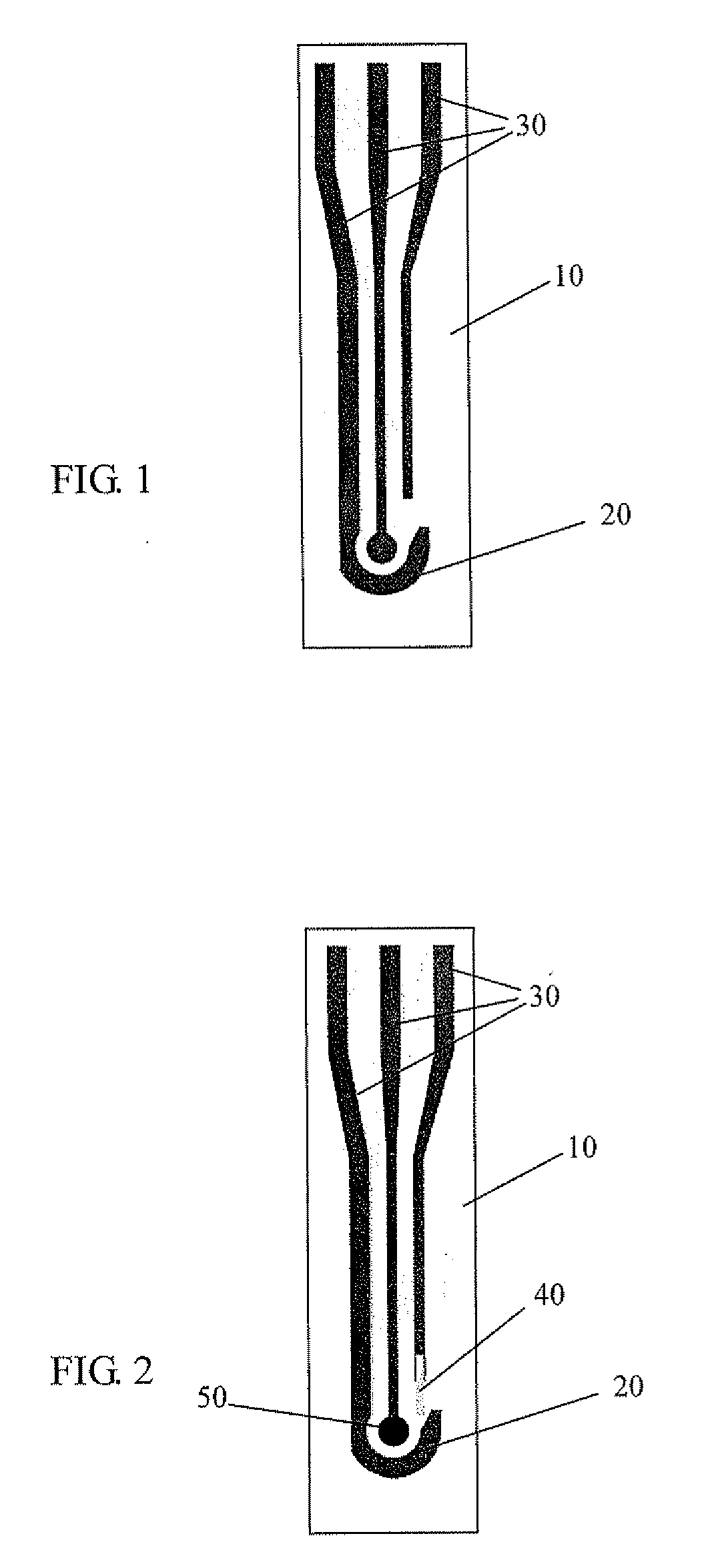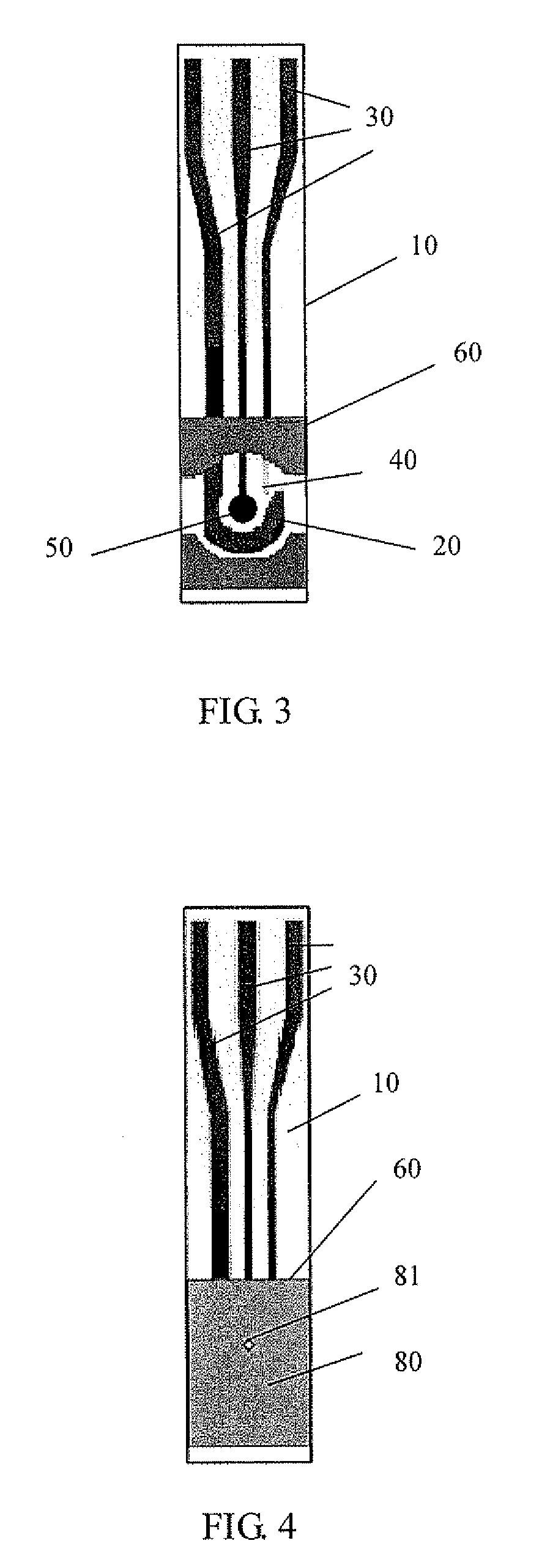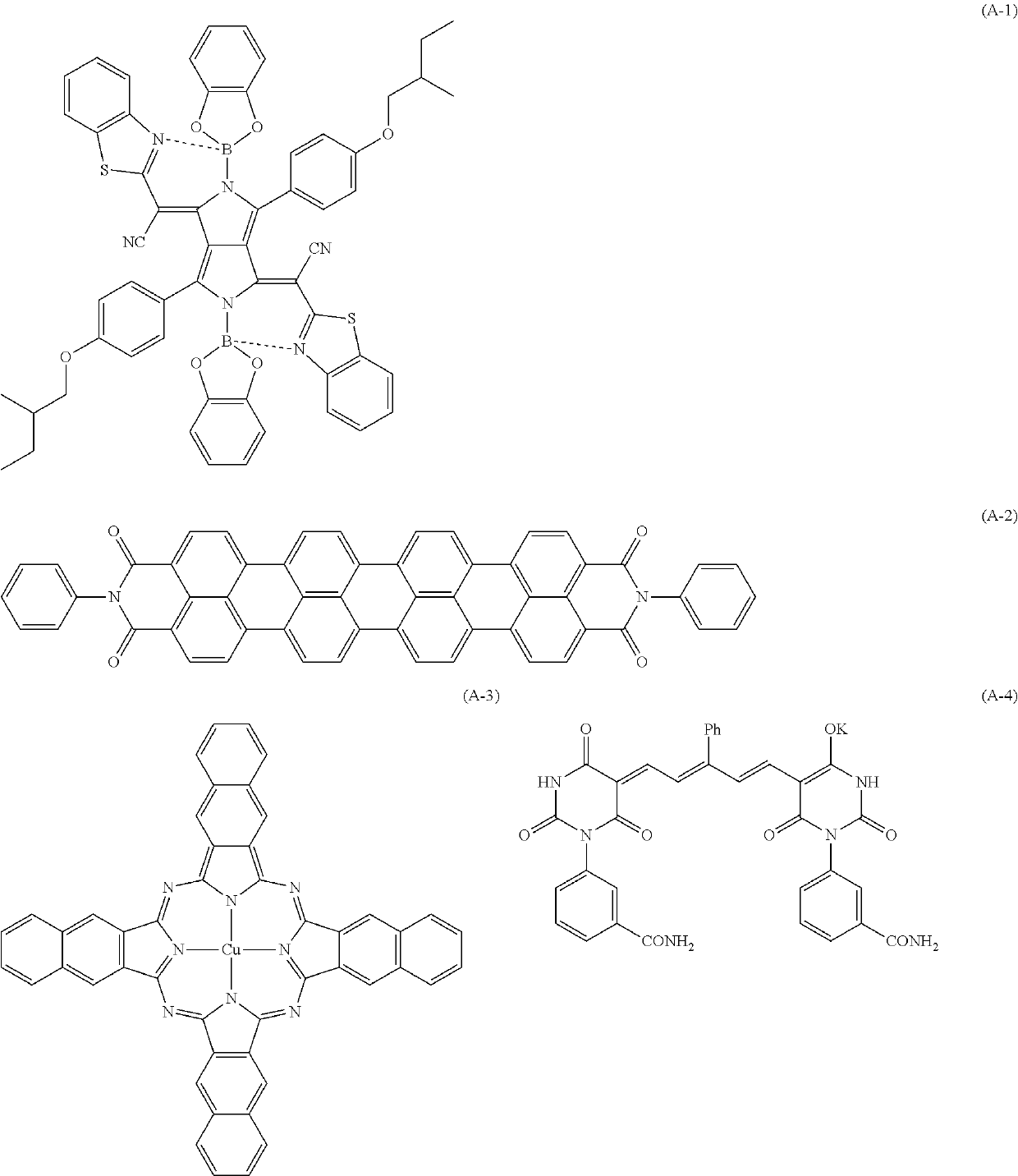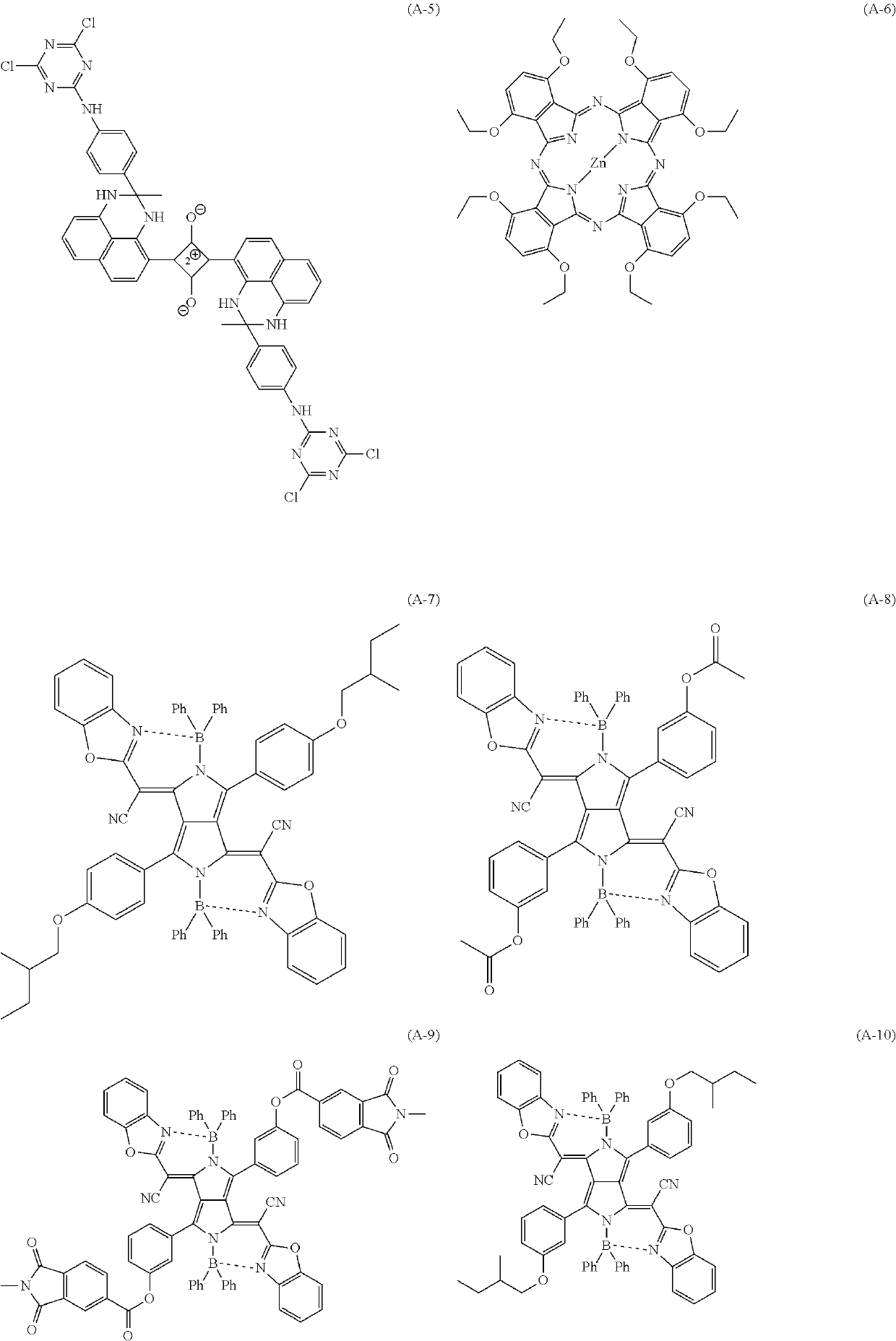Patents
Literature
Hiro is an intelligent assistant for R&D personnel, combined with Patent DNA, to facilitate innovative research.
180 results about "Cobalt phthalocyanine" patented technology
Efficacy Topic
Property
Owner
Technical Advancement
Application Domain
Technology Topic
Technology Field Word
Patent Country/Region
Patent Type
Patent Status
Application Year
Inventor
Preparation method of carbon supported cobalt phthalocyanine catalytic material
InactiveCN101884937AIncrease productivityEasy to prepareCell electrodesOrganic-compounds/hydrides/coordination-complexes catalystsCobalt phthalocyaninePhthalic anhydride
The invention discloses a preparation method of a carbon supported cobalt phthalocyanine (CoPc / C) catalytic material and aims at providing a preparation method of a catalytic material with simple and stable technology, low cost and easy industrialized production. The method comprises the following steps: placing phthalic anhydride, urea, CoCl2.6H2O, ammonium molybdate and carbon black powder processed by acid or H2O2 in a mortar to fully grind, heating the mixture to 200-900 DEG C, and keeping temperature for 3h to obtain the CoPc / C catalytic material, wherein the metal content of the material is 2.5-8wt%. The preparation method of the invention uses preprocessed carbon black as carrier, phthalic anhydride, urea and CoCl2.6H2O as raw materials and ammonium molybdate as catalytic material to directly add the carbon black material processed by acid in the reactant system for high-temperature pyrolysis and obtain the CoPc / C material in one step. The preparation method is simple, the cost is low, the production efficiency is high and the industrial production of the material is easy to realize.
Owner:TIANJIN JIUJU ENERGY TECH DEV
Solid catalyst for petroleum liquid component sweetening and preparation method
InactiveCN101474574AIncrease alkalinityHigh activityOrganic-compounds/hydrides/coordination-complexes catalystsHydrocarbon oils refiningKeroseneAlkali metal oxide
Disclosed is a solid catalyst used for removal of mercaptans of petroleum liquid ingredients. The catalyst uses gamma-Al2O3 as a carrier, first loads a metal nitrate on the carrier by immersion method and then bakes the metal nitrate to realize loading of alkali metal oxide on the carrier gamma-Al2O3 so as to produce the alkali catalyst carrier, and then uses the mixed solution of sulfonated cobalt phthalocyanine and ethanol water added with quaternary ammonium salt or organic base as impregnating solution to impregnate the carrier to obtain the target catalyst after drying. The catalyst is mainly suitable for removal of mercaptans of liquefied petroleum gas, gasoline, kerosene, naphtha, aviation fuel, liquid propylene and other liquefied petroleum ingredients. Experiments prove that the thiol conversion rate can stand at 100% in 20min and the life of the catalyst exceeds 300h.
Owner:CHANGCHUN UNIV OF TECH
Method and electrochemical sensing strip with screen-printed three electrodes for determining concentration of dissolved oxygen in a solution
InactiveUS20070256944A1High sensitivityEasy to useWeather/light/corrosion resistanceVolume/mass flow measurementCobalt phthalocyanineElectrochemistry
A new electrochemical method for determining dissolved oxygen concentration is developed. It employs cobalt based oxide or complex to modify a conductive electrode surface. This method can be applied to determine dissolved oxygen in regard to medical and environmental demands. The chemical formula of the cobalt based oxide or complexes can be shown as CoxOy or CoaLb. Both “x” and “a” represent the number of cobalt atom; while “y” and “b” represent the number of oxygen atom and the number of coordinating ligand, respectively. For instance, the best known example of cobalt oxide is CO3O4, and the best known examples of cobalt complexes are cobalt phthalocyanine (CoPC) and cyanocobalamin (vitamin B12), or other macrocyclic complexes with a metallic nucleus of cobalt. The present invention determines the concentration of dissolved oxygen in solution in potentiostatic mode with three electrodes. As a result, the dissolved oxygen can be determined between 0.0V and −0.3V vs. Ag / AgCl, thereby significantly reducing the interferences from the easily oxidized compounds in water solutions.
Owner:TAMKANG UNIVERSITY
Modified glassy carbon electrode (GCE) capable of simultaneously determining dopamine and uric acid in presence of ascorbic acid as well as preparation method and application thereof
InactiveCN102313768AEasy to prepareFast preparation methodMaterial analysis by electric/magnetic meansElectrochemical biosensorSynthesis methods
The invention relates to a modified glassy carbon electrode (GCE) capable of simultaneously determining dopamine and uric acid in the presence of ascorbic acid as well as a preparation method and an application thereof, and belongs to the technical field of electrochemical analysis and detection. The modified GCE is modified by platinum nanoparticles-cobalt phthalocyanine-multi-walled carbon nanotubes (MWCNTs), wherein, the cobalt phthalocyanine is formed on the MWCNTs in situ, and the platinum nanoparticles are formed on the cobalt phthalocyanine in situ. The preparation method comprises the following steps: preparing a cobalt phthalocyanine-MWCNTs composite material by an in-situ synthesis method; then adsorbing the platinum nanoparticles onto the surface of the cobalt phthalocyanine-MWCNTs by a chemical reduction method; and finally obtaining the GCE modified by the platinum nanoparticles-cobalt phthalocyanine-MWCNTs by a dispensing method. The modified GCE prepared by the method is taken as a novel electrochemical biological sensor and can simultaneously detect the dopamine and the uric acid in the presence of the ascorbic acid. The preparation method is simple, fast and easy to operate and good in selectivity.
Owner:CAPITAL NORMAL UNIVERSITY
Desulphurization catalyst of sulfosalt of phthalocyanine iron cobalt, and preparation method
InactiveCN101049576AHigh catalytic activityImprove desulfurization efficiencyOrganic-compounds/hydrides/coordination-complexes catalystsDispersed particle separationIron saltsPhthalocyanine
A phthalocyanin-iron-cobalt-ammonium sulfonate as the dsulfurizing catalyst with high catalytic activity and desulfurizing efficiency (more than 99%) is prepared through preparing the sulfonated chemical from phthalic anhydride as raw material and smoking sulfuric acid as sulfonating agent, preparing phthalocyanin-iron-cobalt- ammonium sulfonate from said sulfonated chemical, ammonium molybdate as catalyst, urea, cobalt chloride and iron salt, drying, and pulverizing.
Owner:汪晓梅
Preparation method of sulphonation phthalein cobalt catalyst using activated carbon as carrier
InactiveCN101357340AIncrease contentDipping shortOrganic-compounds/hydrides/coordination-complexes catalystsActivated carbonActive component
The present invention discloses a preparation method of a sulfonated cobalt phthalocyanine catalyst which takes active carbon as a carrier. The preparation method comprises the treatment of the active carbon and the preparation of the aqueous solution or the alkaline solution of sulfonated cobalt phthalocyanine. The preparation method is characterized in that the temperature of the active carbon is controlled to be 300 DEG C to 500 DEG C; under the protection of inert gas, the active carbon is directly dipped in the aqueous solution or the alkaline solution dissolved with the sulfonated cobalt phthalocyanine; or the aqueous solution or the alkaline solution dissolved with the sulfonated cobalt phthalocyanine is directly sprayed and dipped at the high temperature active carbon with the protection of the inert gas; then the sulfonated cobalt phthalocyanine catalyst with high load is obtained after cooling treatment once more. The content of sulfonated cobalt phthalocyanine active component loaded by the present invention is high; cobalt loaded quantity can be more than 10 percent of the quality of active carbon framework; the time for dipping or spraying and dipping treatment is short and is just 1 to 60 seconds; catalyzing active component loaded at the active carbon does not falling off easily, and the preparation method can be combined with the traditional active carbon preparation technology to prepare a catalyst product at a time.
Owner:承德绿世界活性炭有限公司
Liquid hydrocarbon treatment method
InactiveUS6860999B2Refining with oxygen compoundsTreatment with plural serial refining stagesThiolLiquid state
The invention relates to a method for treating and upgrading a hydrocarbon containing acidic species such as mercaptans, comprising:(a) contacting the hydrocarbon, in the essential absence of oxygen, with a first phase of a treatment composition containing water, dissolved alkali metal hydroxide, cobalt phthalocyanine sulfonate, and dissolved alkylphenylates and having at least two phases, (i) the first phase containing water, alkali metal alkylphenylate, dissolved alkali metal hydroxide, and dissolved sulfonated cobalt phthalocyanine, and (ii) the second phase containing water and dissolved alkali metal hydroxide; and then (b) separating an upgraded hydrocarbon.
Owner:EXXON RES & ENG CO +1
Lithium/thionyl chloride(Li/SOCl2) battery containing bromine chloride
InactiveCN101345306AHigh porosityImprove discharge capacityCell electrodesOrganic electrolyte cellsPorosityLithium
The invention relates to a Li / SOCl2 battery containing BrCl, which adopts a carbon cathode containing cobalt phthalocyanine and uses nickel net as a cathode current collector; electrolyte is LiAlCl4 / SOCl2 solution which contains BrCl; furthermore, 0 to 0.5 percent of cobalt phthalocyanine is added into the electrolyte; lithium sheets with coarse surface are pressed on stainless steel surface and taken as anode. By adding the cobalt phthalocyanine with suitable quantity in the battery carbon cathode and electrolyte, the porosity of the carbon cathode is improved, thus having good restriction effect on the deposition of the LiCl on the surface of the cathode. The discharging capacity of the novel Li / SOCl2 battery containing BrCl is improved by more than 20 percent compared with the normal Li / SOCl2 battery containing BrCl, and the working voltage is improved by more than 0.15V.
Owner:SHANGHAI UNIVERSITY OF ELECTRIC POWER
Method for preparing lithium/thionyl chloride battery carbon cathode
ActiveCN101414677AImprove discharge capacityWork lessElectrode manufacturing processesPrimary cell electrodesPorous carbonCobalt phthalocyanine
The invention discloses a carbon cathode of a lithium / thionyl chloride cell and a preparation method thereof. The preparation method comprises the following steps: a. mixing acetylene black, polytetrafluoroethylene aqueous solution with 60% weight concentration and isopropyl alcohol according to a weight ratio of 22:5:200, adding cobalt phthalocyanine complex which accounts for 2-10% of the total weight of the solid mixture, and evenly mixing various components to obtain cathode paste and powder; b. rolling the cathode paste and powder for molding; and c. drying in vacuum. In the preparation method, the cobalt phthalocyanine complex is doped into the carbon cathode of the lithium / thionyl chloride cell to act as an electrocatalyst and a pore forming agent, thus improving the porosity of the carbon cathode, increasing the surface area of the carbon cathode, effectively reducing the transmission resistance of reactive ions and electric charge in the multi-porous carbon electrode, being capable of improving the discharge capacity and the operating voltage of the lithium / thionyl chloride cell, and improving the high-current discharge capacity of the cell.
Owner:SHANGHAI UNIVERSITY OF ELECTRIC POWER +1
Chemical modified titanium dioxide photocatalyst and preparation method thereof
InactiveCN105833913AReduced band gapIncreased visible light response rangeWater/sewage treatment by irradiationWater treatment compoundsCobalt phthalocyanineUltraviolet lights
The invention discloses a chemical modified titanium dioxide photocatalyst. The photocatalyst is prepared by supporting a certain amount of titanium dioxide to graphene and cobalt phthalocyanine sulfonate composition. The chemical modified titanium dioxide photocatalyst can organically combine grapheme, cobalt phthalocyanine sulfonate and titanium dioxide, reduce the energy gap of the titanium dioxide, improve the transfer efficiency of electrons, improve the visible-light response range of the catalyst, and activate oxygen. The modified titanium dioxide photocatalyst has response for the visible-light with the wavelength not less than 460 nm. The chemical modified titanium dioxide photocatalyst can degrade the organic pollutant in water rapidly by means of activating dioxygen in the presence of ultraviolet light and visible light. The preparation method of the chemical modified titanium dioxide photocatalyst has simple process and low cost, and is suitable for industrial production.
Owner:HOHAI UNIV
Method for purifying arsenic hydride gas in industrial waste gas
InactiveCN101402020ALow costLow releasabilityMolecular sieve catalystsDispersed particle separationFixed bedCalcination
The invention relates to a method for purifying hydrogen arsenide in industrial waste gas, which comprises the following steps: firstly, a mixed modified solution of a cobalt phthalocyanine solution and one ion or a plurality of ions of Fe<3+>, Mn<2+> and Ni<2+> is prepared; secondly, molecular sieve is placed into the modified solution, and modified molecular sieve catalyst is obtained after impregnation, drying and calcination; and thirdly, the modified molecular sieve catalyst is placed into a fixed bed reactor, and the industrial waste gas, including 80 to 90 volume percent of CO, less than 2 volume percent of O2 and 500 to 1600 milligrams per cubic meter of AsH3, undergoes solid catalysis, oxidation and purification, so that the content of the hydrogen arsenide in the industrial waste gas is reduced to below 0.3 milligram per cubic meter. The modified molecular sieve catalyst has high low-temperature activity, can be used in complex industrial gas atmosphere containing CO, H2S, SO2, COS, PH3 and so on, and has good selectivity on AsH3. The method can be applied in factories such as large-scale coke-oven plants, yellow phosphorus manufacturing plants, calcium carbide plants, and provides a feasible path for air pollution control and monocarbide chemical process development of China.
Owner:KUNMING UNIV OF SCI & TECH
Method for hydrolysis-oxidation coupled purification of HCN
InactiveCN103463972AAchieving Hydrolytic OxidationGood purification effectMolecular sieve catalystsDispersed particle separationSulfonatePtru catalyst
The invention discloses a method for hydrolysis-oxidation coupled purification of HCN, belonging to the field of gaseous pollutant control. According to the method, a catalyst takes Fe, Mn, Mo and W as active ingredients for hydrolysis and oxidation, and a Co(II)Schiff base complex, cobalt phthalocyanine sulfonate and the like, which serve as oxygen storing active ingredients, and rare-earth-metal active substances, such as La, Ce and the like, are added to improve the hydrothermal stability of the catalyst, so that HCN can be subjected to hydrolysis-oxidation coupled catalytic purification under low-temperature and micro-oxygen conditions and is finally converted into non-toxic and harmless products, namely N2, CO2 and water, and the selectivity of N2 is high. A preparation method of the catalyst is simple in process and low in cost.
Owner:KUNMING UNIV OF SCI & TECH
Chemical grafting method for preparing amidogen cobalt-phthalocyanine/carbon nano tube composite catalyst
ActiveCN103920535AEasy to prepareSimple post-processingOrganic-compounds/hydrides/coordination-complexes catalystsCompound (substance)Cobalt phthalocyanine
The invention relates to the technical field of carbon nano tube composite catalyst grafting, in particular to a chemical grafting method for preparing an amidogen cobalt-phthalocyanine / carbon nano tube composite catalyst. The chemical grafting method comprises the four steps of 1,8,15,22-tetranitro cobalt-phthalocyanine preparation, 1,8,15,22-four-amidogen cobalt-phthalocyanine preparation, carbon nano tube pretreatment and composite catalyst preparation. According to the technical scheme, the amidogen cobalt-phthalocyanine / carbon nano tube composite catalyst is prepared, selected raw materials are wide in source, the preparation method is simple, aftertreatment is easy, and industrial production is facilitated.
Owner:邳州市博睿投资管理有限公司
Enzyme electrode for detecting hydrogen peroxide and preparation method of enzyme electrode
InactiveCN102323318ARealize detectionMaterial analysis by electric/magnetic meansElectrochemical biosensorSynthesis methods
The invention relates to a preparation method of a carbon nano tube and metal phthalocyanine / enzyme modified glassy carbon electrode for detecting hydrogen peroxide, belonging to the technical field of electrochemical analysis and detection. A multi-wall carbon nano tube and cobalt phthalocyanine composite material is prepared by using an in-situ synthesis method, a carbon nano tube and metal phthalocyanine / hydrogen peroxide enzyme modified glassy carbon electrode is prepared by using a dropwise-coating method, a novel electrochemical biosensor is manufactured, and H2O2 can be detected rapidly, stably, flexibly and accurately, and interference of common substances such as ascorbic acid and the like on the measurement of H2O2 can be eliminated.
Owner:CAPITAL NORMAL UNIVERSITY
Cathode, preparation method thereof and lithium battery employing cathode
ActiveCN105720235AHigh catalytic activityImprove catalytic stabilityCell electrodesCobalt phthalocyanineNitrogen doped graphene
The invention provides a cathode, a preparation method thereof and a lithium / thionyl chloride battery employing the cathode. Macrocyclic structure compounds, namely transition metal and nitrogen-doped graphene are added to the cathode as catalysts; and the lithium / thionyl chloride battery prepared by the cathode has relatively excellent electrochemical property, so that the discharge voltage and the discharge capacity of the lithium / thionyl chloride battery prepared by the cathode are significantly improved; the catalytic activity retention rate of the lithium / thionyl chloride battery is significantly improved; the catalytic activity retention rate is obviously superior to that of the lithium / thionyl chloride battery prepared by the cathode of a common macrocyclic compound catalyst (such as cobalt phthalocyanine CoPc) in the prior art; the prepared battery is discharged to 2.0V with a discharge test system at a room temperature under the current density condition of 25mA.cm<-2>; the specific discharge capacity reaches 1850mAh.g<-1>; and the discharge voltage is improved by over 180mV.
Owner:EVE ENERGY CO LTD
Active carbon desulphurization adsorbent loaded with cobalt phthalocyanine sulfonate and preparation method
ActiveCN105080488AHigh removal rateHigh breakthrough sulfur capacityIon-exchange process apparatusOther chemical processesActivated carbonSulfonate
The invention relates to a active carbon desulphurization adsorbent loaded with cobalt phthalocyanine sulfonate and a preparation method thereof, and mainly solves problems that sulfur removal rate is low, and breakthrough sulfur capacity of desulfurizer is low in existing gas adsorption, desulphurization and purification technology. In the invention cobalt phthalocyanine sulfonate is employed as active ingredient and a small amount of phosphor is added for modifying the active carbon. In this way, the solid adsorbent is obtained. The problems of low sulfur removal rate, etc. are solved. The desulphurization adsorbent of the invention can be used in adsorption and purification of gas materials for removal of sulfur-containing compound.
Owner:CHINA PETROLEUM & CHEM CORP +1
Compounded desulfurization slurry containing complexing agent and preparation method of compounded desulfurization slurry
ActiveCN103920388AHigh sulfur capacityImprove desulfurization efficiencyDispersed particle separationSulfonateSulfur
The invention relates to compounded desulfurization slurry containing a complexing agent and a preparation method of the compounded desulfurization slurry. According to the preparation method, a ferric salt complexing agent and hydroxyl ferric oxide are added into a dicaryon cobalt phthalocyanine sulfonate solution to carry out desulfurization under a combined action of the ferric salt complexing agent, the hydroxyl ferric oxide and the dicaryon cobalt phthalocyanine sulfonate solution, so that the characteristics of high desulfurization velocity and efficiency of a cobalt phthalocyanine sulfonate desulfurization solution are effectively combined with a high sulfur capacity property of the hydroxyl ferric oxide; the compounded desulfurization slurry simultaneously has high desulfurization efficiency and sulfur capacity, so that the high-speed, high-efficiency and high-precision desulfurization can be effectively realized, and the desulfurization cost is low.
Owner:福建三聚福大化肥催化剂国家工程研究中心有限公司 +1
Method for preparing high-purity diethyl disulfide
ActiveCN103880722AReduce manufacturing costReduce the discharge of three wastesHydropoly/poly sulfide preparationBisulfideCatalytic oxidation
The invention relates to a method for preparing high-purity diethyl disulfide. The method comprises the following steps: mixing an ethanethiol-enriched petrochemical raw material with NaOH solution in a volume ratio of (1:1)-(5:1), and reacting for 1-30 minutes at 25-45 DEG C to prepare a sodium mercaptide-containing alkaline solution; adding cobalt phthalocyanine catalysts and an oxidant in the sodium mercaptide-containing alkaline solution, carrying out catalytic oxidation at 35-40 DEG C, and reacting for 1-8 hours to obtain a disulphide mixture; primarily distilling the disulphide mixture to obtain a disulphide crude product; rectifying and purifying the disulphide crude product to obtain the high-purity diethyl disulfide finished product. The method disclosed by the invention has the following beneficial effects that the production cost of diethyl disulfide is reduced, the production process is simplified, and the three-waste discharge and environmental pollution during the preparation process for the diethyl disulfide are reduced.
Owner:NINGBO ZHONGYI PETROCHEM TECH
Pyridyl cobalt phthalocyanine-cobalt compound/graphene composite material and preparation method thereof
InactiveCN103985885AHigh catalytic activityImprove conductivityMaterial nanotechnologyCell electrodesSynthesis methodsAlcohol fuel
The invention belongs to the technical field of methyl alcohol fuel battery negative electrode catalyst application, and provides a pyridyl cobalt phthalocyanine-cobalt compound / graphene composite material and a preparation method thereof. The pyridyl cobalt phthalocyanine-cobalt compound / graphene composite material consists of a pyridyl cobalt phthalocyanine-cobalt compound and graphene. The preparation method comprises the steps of dispersing the graphene into n-amyl alcohol, adding pyridyl dinitrile and cobalt salt to obtain a mixture, performing ultrasonic dispersion, transferring the mixture into a reaction kettle, adding 1,8-diazabicyclo undecylenic-7-alkene, reacting at the temperature of 160 DEG C for 24 hours, and naturally cooling to obtain pyridyl cobalt phthalocyanine-cobalt / graphene powder; washing the pyridyl cobalt phthalocyanine-cobalt / graphene powder, and drying the washed pyridyl cobalt phthalocyanine-cobalt / graphene powder in vacuum to obtain the pyridyl cobalt phthalocyanine-cobalt compound / graphene composite material. The pyridyl cobalt phthalocyanine-cobalt compound / graphene composite material provided by the invention is excellent in comprehensive catalysis performance to oxygen, and the provided synthesis method is simple and feasible and is simple to operate.
Owner:CHANGCHUN UNIV OF SCI & TECH
Preparation method for sulfonated cobalt phthalocyanine sensitized titanium dioxide compound photocatalyst
ActiveCN105170192AImprove stabilityVisible light catalytic efficiency is highWater/sewage treatment by irradiationOrganic-compounds/hydrides/coordination-complexes catalystsCobalt phthalocyanineLight response
The invention relates to a preparation method for sulfonated cobalt phthalocyanine sensitized titanium dioxide compound photocatalyst and belongs to the technical field of inorganic-organic compound catalytic material preparation. Sulfonated cobalt phthalocyanine is purified and activated and then reacts with titanium dioxide nanometer particles for 10-24 hours inside a water solution at normal temperature and normal pressure to form sulfonate type chemical bonding; then through filtering, washing and drying, the compound photocatalyst is obtained, wherein the mass ratio of the compound photocatalyst is 0.5-2.0:100. Through the method, sulfonated cobalt phthalocyanine can be effectively loaded on the titanium dioxide nanometer particles to improve the visible-light response characteristic of the photocatalyst without changing the crystal-form distribution of the titanium dioxide nanometer particles. The compound photocatalyst prepared through the method has remarkably improved visible-light catalytic activity; under the same conditions, through the compound photocatalyst, the degrading efficiency of methylene blue dye in simulation wastewater is 2.4 times that of non-sensitized titanium dioxide nanometer particles. According to the method, no organic solvent is used, normal-temperature and normal-pressure reaction is performed, the cost is low, and energy consumption is low.
Owner:UNIV OF SCI & TECH BEIJING
Oxidation regeneration method of alkali liquid containing sulfur
InactiveCN106939172AAchieve deep oxidationLow costHydrocarbon oils refiningHydrocarbon oils treatmentStable stateBisulfide
The invention provides an oxidation regeneration method of an alkali liquid containing low concentration sodium mercaptide. The content of sodium mercaptide in the sodium mercaptide-containing alkali liquid is not more than 0.1 wt%. The method comprises the following steps: the alkali liquid and oxygen-rich air respectively enter a hypergravity reactor and undergo a reaction; the sodium mercaptide is oxidized without a catalyst to generate disulfide, and at least a part of the disulfide volatilizes into tail gas; and the regenerated alkali liquid and the tail gas flow carrying gaseous disulfide respectively leave the hypergravity reactor. The method adopts the hypergravity reactor to replace a traditional oxidation tower, so the deep oxidation of the sodium mercaptide is realized; the oxygen-rich air with the oxygen volume percentage being not less than 35% is used as an oxidant, so the oxidation rate is further improved; cobalt phthalocyanine catalysts are not added, so the catalyst cost is saved; and a large air / liquid ratio under a stable state condition is adopted to realize effective separation of the disulfide and the alkali liquid, so the disulfide separation process is omitted, and almost no waste alkali liquid is not generated in the process.
Owner:PETROCHINA CO LTD
Refinery waste gas desulfurizer, preparation method and applications thereof
ActiveCN105126597AIncrease alkalinityIncrease polarityDispersed particle separationCobalt phthalocyanineCerium
The invention provides a refinery waste gas desulfurizer, a preparation method and applications thereof. The desulfurizer is composed of the following components in percentage by weight: 1.6 to 6.4 wt% of CuO, 1 to 3 wt% of NiO, 0.2 to 0.8 wt% of CeO2, 0.1 to 0.5 wt% of cobalt phthalocyanine substance, and the balance being active carbon, which has been processed by nitrogen-containing compounds. The active carbon is modified by nitrogen-containing compounds, the alkali property and polarity of active carbon surface are both improved, and thus the absorbing performance of active carbon on acidic sulfides is enhanced. Then oxides of copper, nickel, and cerium are loaded on the modified active carbon so as to further improve the alkali property of the active carbon surface. Finally cobalt phthalocyanine is loaded on the active carbon and is capable of oxidizing mercaptan in the refinery waste gas into corresponding disulfides, which can be absorbed by active carbon. So the prepared desulfurizer can efficiently absorb and remove sulfides such as hydrogen sulfide, carbonyl sulfide, thioether, mercaptan, disulfides, and the like in the refinery waste gas in one time. The total sulfur concentration in the outlet is less than 2 mg / m3. The breakthrough sulfur capacity can reach 32% or more.
Owner:SHENYANG SANJUKAITE CATALYST
Preparation method of nitro-cobalt phthalocyanine/attapulgite composite photo-catalyst
InactiveCN105536876AProduct yield is highHigh purityWater/sewage treatment by irradiationWater treatment compoundsMalachite greenPhoto catalytic
The invention relates to a preparation method of a nitro-cobalt phthalocyanine / attapulgite composite photo-catalyst. The preparation method comprises the steps of attapulgite pretreatment, nitro-cobalt phthalocyanine preparation and nitro-cobalt phthalocyanine / attapulgite composite photo-catalyst preparation. The preparation method has the beneficial effects of high nitro-cobalt phthalocyanine / attapulgite composite photo-catalyst preparation yield and high purity. Effective degradation of pollutant malachite green is realized, and the photo-catalytic activity of the nitro-cobalt phthalocyanine / attapulgite composite photo-catalyst is obviously better than that of pure nitro-cobalt phthalocyanine particles.
Owner:CHANGZHOU UNIV
Supported cobalt-nitrogen doped carbon catalyst as well as preparation method and application thereof
ActiveCN109675602ASimple processNo pollution in the processOrganic compound preparationAmino compound preparationNitro compoundCobalt phthalocyanine
The invention discloses a supported cobalt-nitrogen doped carbon catalyst as well as a preparation method and an application thereof. The catalyst comprises a carrier and cobalt-nitrogen doped carbon,wherein the carrier is carbon powder or Ce-Al2O3, the cobalt-nitrogen doped carbon is produced from cobalt phthalocyanine by high-temperature in-situ pyrolysis in a nitrogen atmosphere, and the massof the cobalt-nitrogen doped carbon is 1%-20% of that of the carrier. The preparation method of the catalyst comprises the steps of placing cobalt phthalocyanine, the carrier and aids in a ball mill for full ball milling and then performing roasting at 400-1000 DEG C for 1-10 h in the nitrogen atmosphere. The catalyst is applied to a reaction for preparing aromatic amine through catalytic reduction of aromatic nitro-compounds and has higher catalytic activity, product selectivity and substrate universality, no solvent is used in the preparation process of the catalyst, and the preparation method is simple, environmentally friendly and pollution-free and has good industrial application prospects.
Owner:XIAN MODERN CHEM RES INST
Li/SOCl2 nano cobalt phthalocyanine catalyst material for battery and preparation method of Li/SOCl2 nano copper phthalocyanine catalyst material
The invention discloses an Li / SOCl2 nano cobalt phthalocyanine catalyst material for a battery and a preparation method of the Li / SOCl2 nano cobalt phthalocyanine catalyst material, and belongs to the technical field of preparation of Li / SOCl2 catalytic materials for battery electrodes. The bulk solid cobalt phthalocyanine is firstly synthesized through microwave reaction; and then nano cobalt phthalocyanine is prepared by a recrystallization method. The method comprises the steps as follows: the bulk solid cobalt phthalocyanine is firstly dissolved into a concentrated sulfuric acid; a very dilute potassium hydroxide solution is added and quickly stirred for severe neutralization reaction; accelerated nucleation of the cobalt phthalocyanine is relatively easy; and the nano cobalt phthalocyanine is generated. The prepared nano cobalt phthalocyanine has the advantages of being high in purity, short in cycle, low in energy consumption and economical; large-scale production is facilitated; and the nano cobalt phthalocyanine catalyst material prepared by the method has relatively long discharge time and relatively high discharge energy, and can be widely used as an Li / SOCl2 battery catalyst.
Owner:SHAANXI UNIV OF SCI & TECH
Method for improving matrix fiber characteristic of PTFE micro-porous membrane
ActiveCN110459790AImproved chemical mechanical stabilitySimple methodFuel cellsFiberCobalt phthalocyanine
The invention relates to a method for improving the matrix fiber characteristic of a PTFE micro-porous membrane, which is characterized in that a mixed additive coating is applied to the matrix fibersurface of a PTFE micro-porous membrane to increase the tensile strength, improve the ability to eliminate the hydrogen oxygen free radical and the peroxy free radical and thus improve the anti-oxidation chemical stability of the finished enhanced membrane. The mixed additive coating is made of the following materials by weight: 1-20 parts of perfluorinated sulfonic acid resin dispersion with a mass fraction of 20-30%, 0-10 parts of SPEEK, 30-50 parts of ethanol, 30-40 parts of water, 0-0.1 parts of nano oxide material, 0.02-2 parts of functional graphene quantum dots, 0-0.1 parts of macro-cyclic molecular cobalt phthalocyanine sodium sulfonate and 0-0.1 parts of manganese phthalocyanine sodium sulfonate. The method disclosed by the invention is simple, easy to operate, low in implementation cost and efficient, has a good effect on the improvement of the matrix fiber characteristic of a PTFE micro-porous membrane, and can improve the chemical mechanical stability of a proton exchange membrane and prolong the service life.
Owner:苏州创明氢电材料科技有限公司
Preparation method of phthalocyanine cobalt sulfonamide desulfurization catalyst
InactiveCN102259027AAvoid lostAvoid cloggingOrganic chemistryOrganic-compounds/hydrides/coordination-complexes catalystsSulfonyl chlorideChlorosulfuric acid
The invention relates to a method for preparing a cobalt phthalocyanine sulfonamide desulfurization catalyst, comprising the steps of: adding chlorosulfonic acid or chlorosulfonic acid into thionyl chloride and carrying out sulfonation through taking phthalic anhydride as a raw material so as to obtain phthalic anhydride sulfonyl chloride; and subjecting the obtained product and pyromellitic formic anhydride, urea, anhydrous cobalt chloride and ammonium molybdate to condensation reaction so as to obtain dinuclear cobalt phthalocyanine sulfonamide. By means of the preparation method provided by the invention, the problems of phthalic anhydride sublimation, sulfuric acid neutralization and separation and the like caused in conventional productive processes of sulfonated cobalt phthalocyanine are avoided and the preparation method has the characteristics of mild production condition, simple production process, recoverability of excessive raw materials and the like. The obtained cobalt phthalocyanine sulfonamide desulfurization catalyst can be applied to catalytic oxidation removing processes of organic sulfur and inorganic sulfur and has the characteristics of high activity, high selectivity, easiness in regeneration and the like.
Owner:SHANDONG ANALYSIS & TEST CENT
Ordered mesoporous carbon co-loaded cerium dioxide and binuclear cobalt phthalocyanine material and preparation method thereof
ActiveCN108232216AHighly ordered synthesisNo obvious toxicityRare earth metal oxides/hydroxidesCell electrodesCerium nitrateCerium(IV) oxide
The invention discloses an ordered mesoporous carbon co-loaded cerium dioxide and binuclear cobalt phthalocyanine material and a preparation method thereof. The preparation method comprises the following steps: (1) adding an ordered mesoporous carbon material into de-ionized water, a cerium nitrate solution and a sodium hydroxide solution; mixing and stirring for 3 to 4h; filtering, washing and drying at 100 to 120 DEG C for 1 to 3h; roasting to obtain a cerium dioxide doped ordered mesoporous carbon material; (2) mixing the cerium dioxide doped ordered mesoporous carbon material, de-ionized water and binuclear cobalt phthalocyanine and carrying out ultrasonic treatment for 4 to 6h; drying at 60 to 80 DEG C for 10 to 15h to obtain the ordered mesoporous carbon co-loaded cerium dioxide andbinuclear cobalt phthalocyanine material. The preparation method disclosed by the invention is low in cost; adopted raw materials have no obvious toxicity on human bodies, and influences on a materialmesoporous structure in a synthesis process can be reduced to the greatest extent so that cerium dioxide can be doped into the ordered mesoporous carbon material.
Owner:SOUTH CHINA UNIV OF TECH
Method and electrochemical sensing strip with screen-printed three electrodes for determining concentration of dissolved oxygen in a solution
InactiveUS20100326845A1Easy to useFast and stable and cost-effectiveWeather/light/corrosion resistanceVolume/mass flow measurementCobalt phthalocyanineOxygen
A new electrochemical method for determining dissolved oxygen concentration is developed. It employs cobalt based oxide or complex to modify a conductive electrode surface. This method can be applied to determine dissolved oxygen in regard to medical and environmental demands. The chemical formula of the cobalt based oxide or complexes can be shown as CoxOy or CoaLb. Both “x” and “a” represent the number of cobalt atom; while “y” and “b” represent the number of oxygen atom and the number of coordinating ligand, respectively. For instance, the best known example of cobalt oxide is Co3O4, and the best known examples of cobalt complexes are cobalt phthalocyanine (CoPC) and cyanocobalamin (vitamin B12), or other macrocyclic complexes with a metallic nucleus of cobalt. The present invention determines the concentration of dissolved oxygen in solution in potentiostatic mode with three electrodes. As a result, the dissolved oxygen can be determined between 0.0V and −0.3V vs. Ag / AgCl, thereby significantly reducing the interferences from the easily oxidized compounds in water solutions.
Owner:TAMKANG UNIVERSITY
Composition, film, near infrared cut filter, pattern forming method, laminate, solid image pickup element, image display device, camera module, and infrared sensor
InactiveUS20190196073A1Improve heat resistanceGood light fastnessOptical filtersSolid-state devicesSolubilityDisplay device
Provided are a composition with which a film having excellent heat resistance and light fastness can be provided, the film, a near infrared cut filter, a pattern forming method, a laminate, a solid image pickup element, an image display device, a camera module, and an infrared sensor. The composition includes: a near infrared absorbing compound having an absorption maximum in a wavelength range of 650 to 1000 nm; an organic solvent; and a resin, in which the near infrared absorbing compound is at least one selected from the group consisting of a pyrrolopyrrole compound, a rylene compound, an oxonol compound, a squarylium compound, a croconium compound, a zinc phthalocyanine compound, a cobalt phthalocyanine compound, a vanadium phthalocyanine compound, a copper phthalocyanine compound, a magnesium phthalocyanine compound, a naphthalocyanine compound, a pyrylium compound, an azulenium compound, an indigo compound, and a pyrromethene compound, and a solubility of the near infrared absorbing compound in propylene glycol methyl ether acetate at 25° C. is 0.01 to 30 mg / L.
Owner:FUJIFILM CORP
Features
- R&D
- Intellectual Property
- Life Sciences
- Materials
- Tech Scout
Why Patsnap Eureka
- Unparalleled Data Quality
- Higher Quality Content
- 60% Fewer Hallucinations
Social media
Patsnap Eureka Blog
Learn More Browse by: Latest US Patents, China's latest patents, Technical Efficacy Thesaurus, Application Domain, Technology Topic, Popular Technical Reports.
© 2025 PatSnap. All rights reserved.Legal|Privacy policy|Modern Slavery Act Transparency Statement|Sitemap|About US| Contact US: help@patsnap.com
